Hello and welcome to Work Week, the podcast where we answer a relevant question about the future of work, discuss recent research about the topic, and explain what it all means for you.
I’m Dr. Gabby Burlacu, Senior Manager at The Upwork Research Institute—and what you’re hearing is a digital proxy of my voice, created by our team with the help of AI.
Today, we’re talking about an often overlooked but pivotal group in the workforce: middle managers.
Discussions around AI transformation in the workplace typically focus either on leaders making business decisions, or on the individual contributors who are doing the work. But between these is a layer of managers who are leading through change, rapidly adopting technologies they may yet not fully understand, and keeping their teams motivated amid significant disruption.
And that makes today’s question increasingly urgent:
What role do middle managers play in an AI-driven workplace?
And, equally important—what support do they need to thrive in their role?
Let’s start with the data.
According to Gallup’s State of the Global Workplace: 2025 Report, the number of employees worldwide who are engaged at work declined from twenty-three percent to twenty-one percent—the first decrease since twenty-twenty and only the second in the past twelve years.
Any decline in engagement is troubling, but even more alarming is where the drop is happening.
The Gallup research shows that individual contributor engagement was flat year-over-year. However, manager engagement notably decreased from thirty percent to twenty-seven percent.
The data also shows more concerning insights. Managers under thirty-five years old experienced a five-point drop, while female managers saw a seven-point decline in engagement.
These are the very people organizations need most to navigate the next chapter of AI-driven work. And they’re signaling loud and clear: they’re disengaged and need more support.
What’s driving this decline in engagement?
Part of it is context. Since the pandemic, many middle managers have faced an almost constant state of disruption, including organizational restructuring, pressure to adopt AI tools and other technology, and shifting employee expectations—such as increased flexibility and autonomy.
In short, they’re being asked to do more—with less—while also taking on much of the responsibility of reinventing how work gets done.
Some headlines and research suggest that middle manager roles may soon become obsolete. These reports conjecture that AI will flatten organizational structures, automate oversight, and remove the need for coordination. In fact, research from Gartner predicts that, by twenty twenty-six, twenty percent of companies will flatten their organizational structure with the help of AI, which could lead to eliminating more than half of middle management roles.
However, middle managers are critical to organizational success—especially during periods of transformation, such as the current shift toward AI integration.
Why? Because middle managers are the bridge between vision and execution. Ideally, they understand the context from both sides—and are trusted by their teams.
But now, their role is changing.
In an AI-driven workplace, managers aren’t only supervising people. They’re also tasked with redesigning workflows, facilitating collaboration between humans and machines, and reallocating tasks between full-time employees, freelancers, and AI agents. At the same time, middle managers also need to ensure their teams don’t lose human connections amid increased automation.
This doesn’t mean less work for middle managers. In some cases, it’s more work—and it’s different.
In twenty twenty-four, the Capgemini Research Institute surveyed fifteen hundred executives and leaders to identify insights about generative AI at work. According to their findings, more than half of leaders believe managers will play a critical role as catalysts of generative AI-driven change. Additionally, more than half of leaders believe generative AI will lead to more specialized manager roles.
However, the Capgemini report also found a gap between AI usage and its adoption in professional settings. While ninety-seven percent of leaders and managers reported that they have experimented with generative AI tools, only fifteen percent use them at work at least once a day.
So how can leaders help middle managers embrace the latest technology, encourage their teams to do the same, and thrive as organizations increasingly integrate AI?
Here’s one place to look for inspiration: freelancers.
The Upwork Research Institute recently surveyed a cross-section of twenty-five hundred global workers, including C-suite executives; full-time, salaried employees; and freelancers. Based on the survey findings, we developed a research report, From Tools to Teammates: Navigating the Human-AI Relationship.
As we covered in last week’s episode, employees experiencing the most productivity gains with AI also report high levels of burnout.
Middle managers in particular are among the most productive with AI, as well as the most burned out. The research shows that middle managers reported average productivity gains of forty-two percent, compared to forty-percent across all respondents. At the same time, middle managers also reported the highest level of burnout, at seventy-six percent versus sixty-nine percent of individual contributors.
But our data also shows that, especially when compared to managers and other employees, freelancers are charting a more sustainable and empowered path forward in their relationship with AI.
Unlike employees, who may feel AI is imposed on them, freelancers often choose their own tools, shape their own workflows, and prioritize learning and adaptability. And it’s working.
According to our report, ninety-percent of freelancers say AI helps them learn faster, and thirty-seven percent strongly agree that AI helps them build new skills quickly—compared to just twenty-nine percent of full-time, in-house employees.
This is a model middle managers can draw from and potentially find support in.
Picture a future in which middle managers are doing more than overseeing productivity and managing teams. Picture a future in which middle managers have embraced AI tools to accelerate how they learn and develop new skills—while also encouraging their team to do the same.
In an AI-driven future of work, middle managers will be responsible for curating ecosystems of human and machine talent, engaging freelancers when specialized support is needed, and helping their teams build AI fluency while maintaining emotional connection.
Meeting this challenge will require empowering middle managers with the support and direction they need—rather than leaving them to navigate change on their own.
Here’s what the process could look like.
First, redefine middle manager roles. Update job descriptions and performance reviews to shift from supervising to orchestrating. Set expectations for middle managers to take on the responsibility of allocating tasks across employees, freelancers, AI tools, and AI agents. In your job descriptions and performance reviews, also focus on the importance of middle managers building trusted relationships with their teams to effectively drive change, including AI adoption.
Second, upskill middle managers in AI fluency. Provide middle managers with training on how to effectively use AI tools, how to roll out AI technology to team members, and how to integrate AI into team workflows without losing important connections between people.
Third, empower managers to lean on the learning applications of AI tools. Similar to how freelancers embrace AI tools, encourage managers to see AI as a learning partner that can help them build skills faster—rather than simply another tool in their day-to-day work.
Fourth, collect and implement manager feedback. As the Gallup research shows, manager engagement is declining. Implement a process to regularly collect feedback—such as quarterly or semi-annually—about key drivers of manager motivation and engagement. Address feedback by implementing new practices or offering resources to address burnout or disengagement challenges.
Finally, reinforce human connections. As we discussed in last week’s episode, human connection is more important than ever as organizations increasingly adopt AI tools. Encourage middle managers to implement relationship-building practices, including regular feedback, formal and informal check-ins, and team-centered rituals that AI can’t replace.
As AI reshapes work, middle managers will take on much of the responsibility of determining whether changes are empowering or alienating.
Middle managers are the architects of this new blended workforce that includes internal employees, freelancers, and AI tools and agents.
As always, we like to end each episode of Work Week with an action item you can implement immediately and a reflection question to consider.
If you’re a middle manager—or work with one—identify one project or workflow where human effort, AI tools, and possibly even freelance support could come together to create a better outcome.
This might mean,
Bringing in a freelancer with AI expertise to support a project your team doesn’t have capacity for,
Reassigning a repetitive task to an AI assistant so you can free up time for coaching or mentorship,
Or redesigning a team process so it reflects both AI acceleration and human collaboration.
Pick one place to prototype this. It doesn’t have to be huge. But it does need to be intentional.
And now, for this week’s reflection question, ask yourself,
Which tools or resources can you offer to empower middle managers—and their teams—to thrive amid AI transformation?
In this new, AI-driven world of work, management isn’t about control. It’s about coordination. It’s about designing systems that elevate both people and performance.
The middle manager role isn’t disappearing. It’s being redefined.
And if organizations effectively rethink the role, middle managers will become one of the most important forces for shaping AI-enabled, human-centered workplaces.
So let’s stop asking whether middle managers are still relevant—and start asking how to empower middle managers to lead in the future of work.
Thank you for listening to this episode of Work Week. I’m Gabby Burlacu and if this resonated with you—and especially if you’re a middle manager yourself—share it with a colleague. And don’t forget to subscribe to stay updated on the latest insights about the rapidly changing world of work.







.png)
.png)
.png)
.png)
.png)
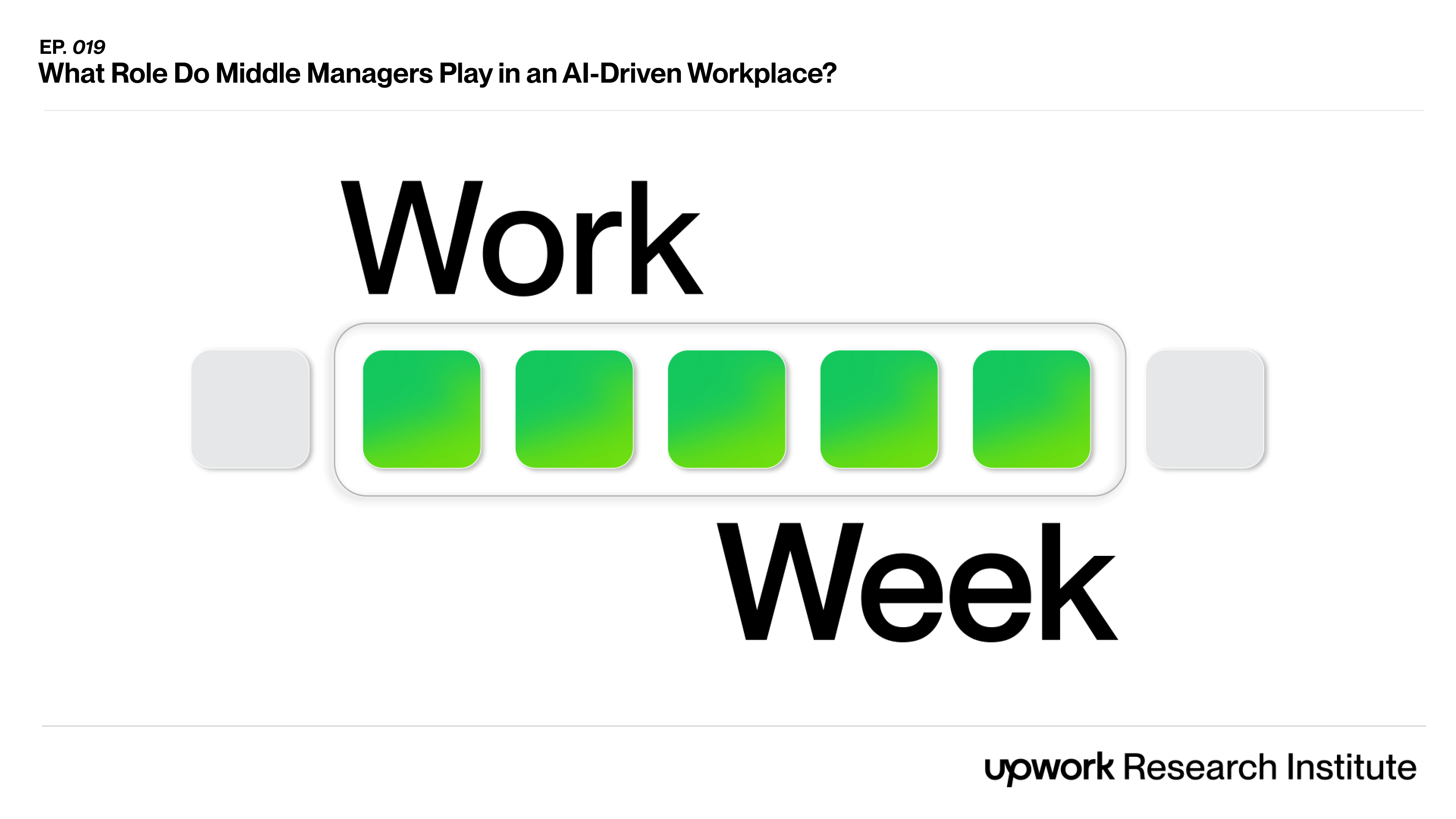


.png)

-p-500.jpg.png)

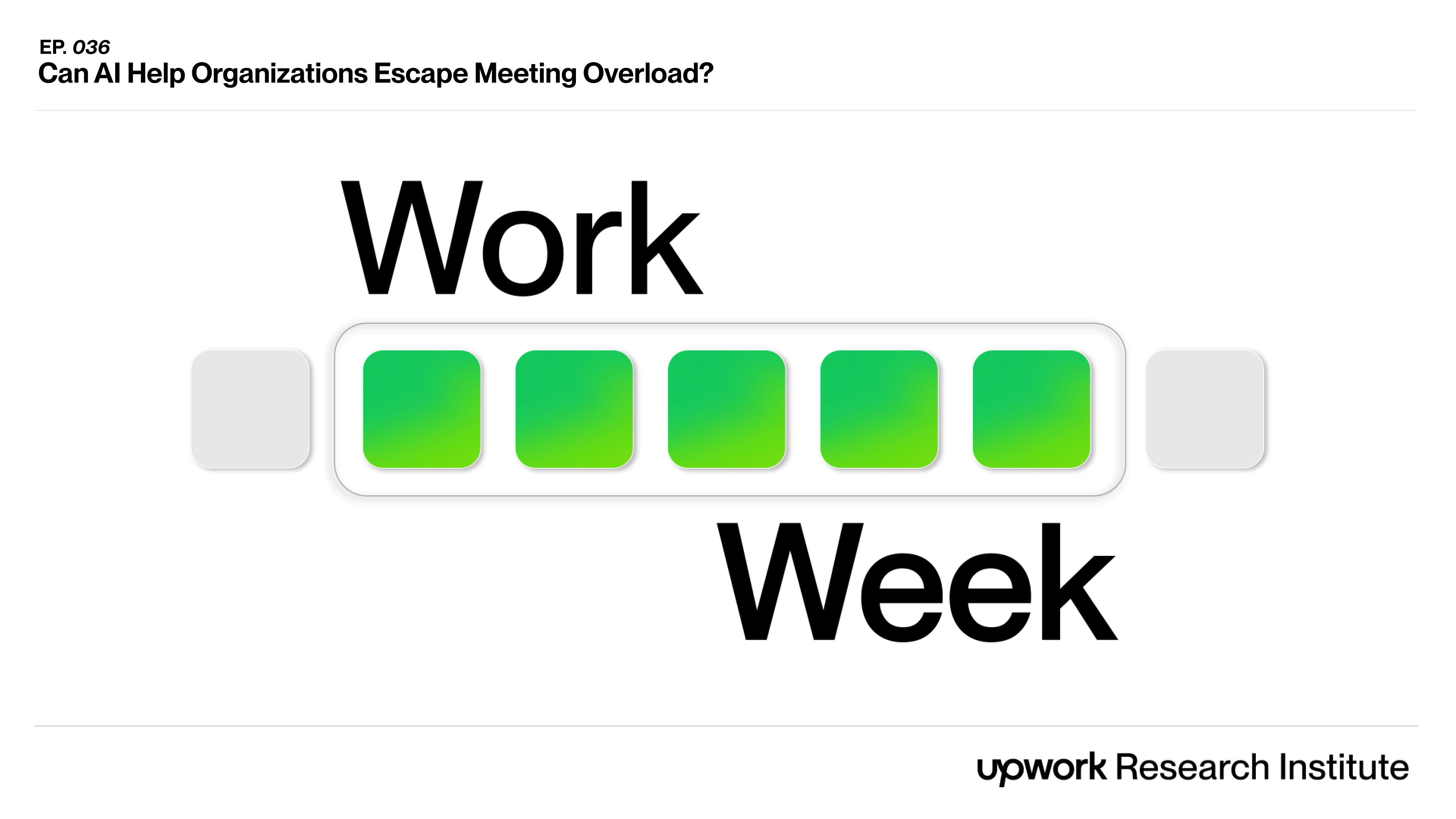

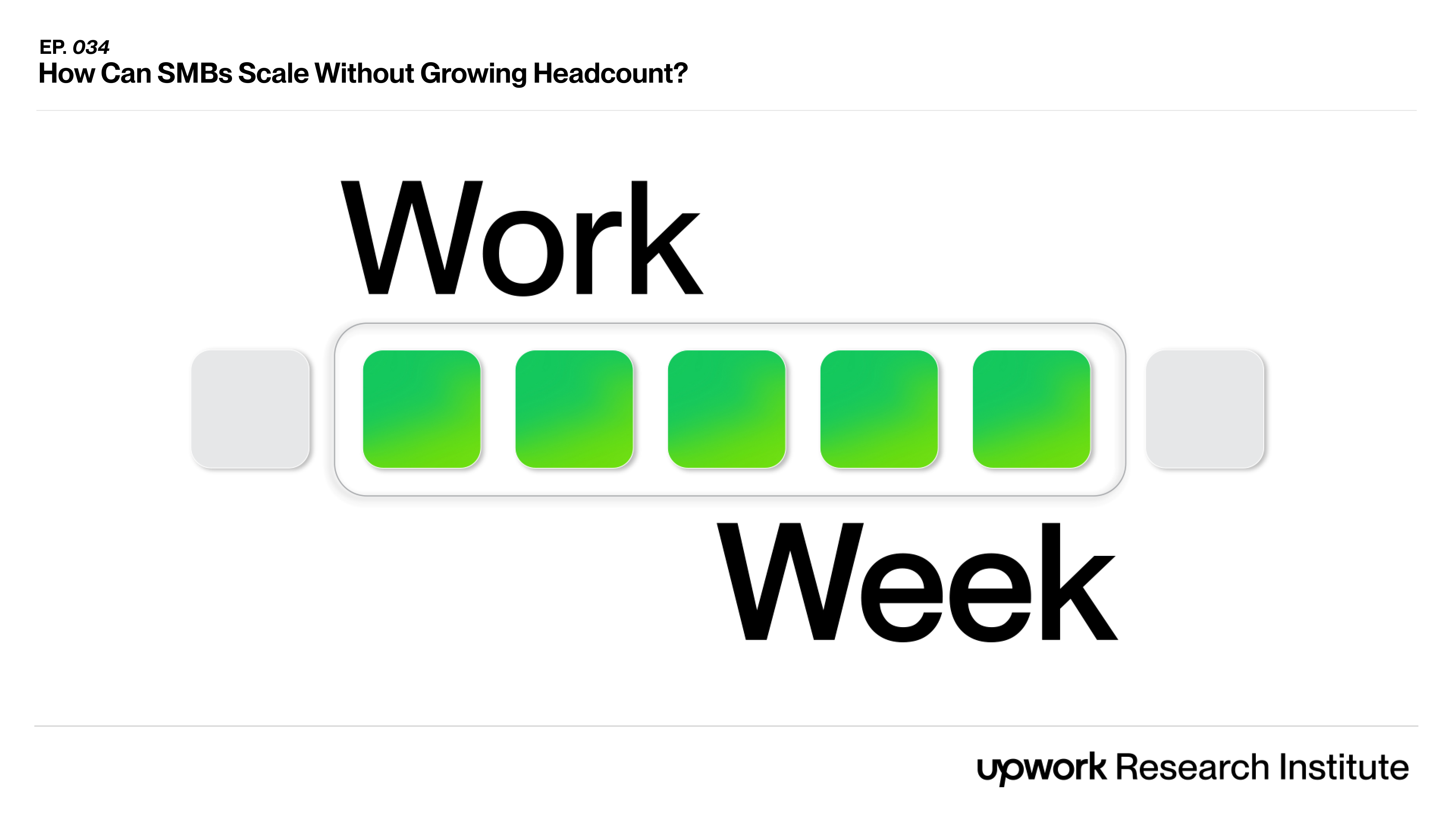
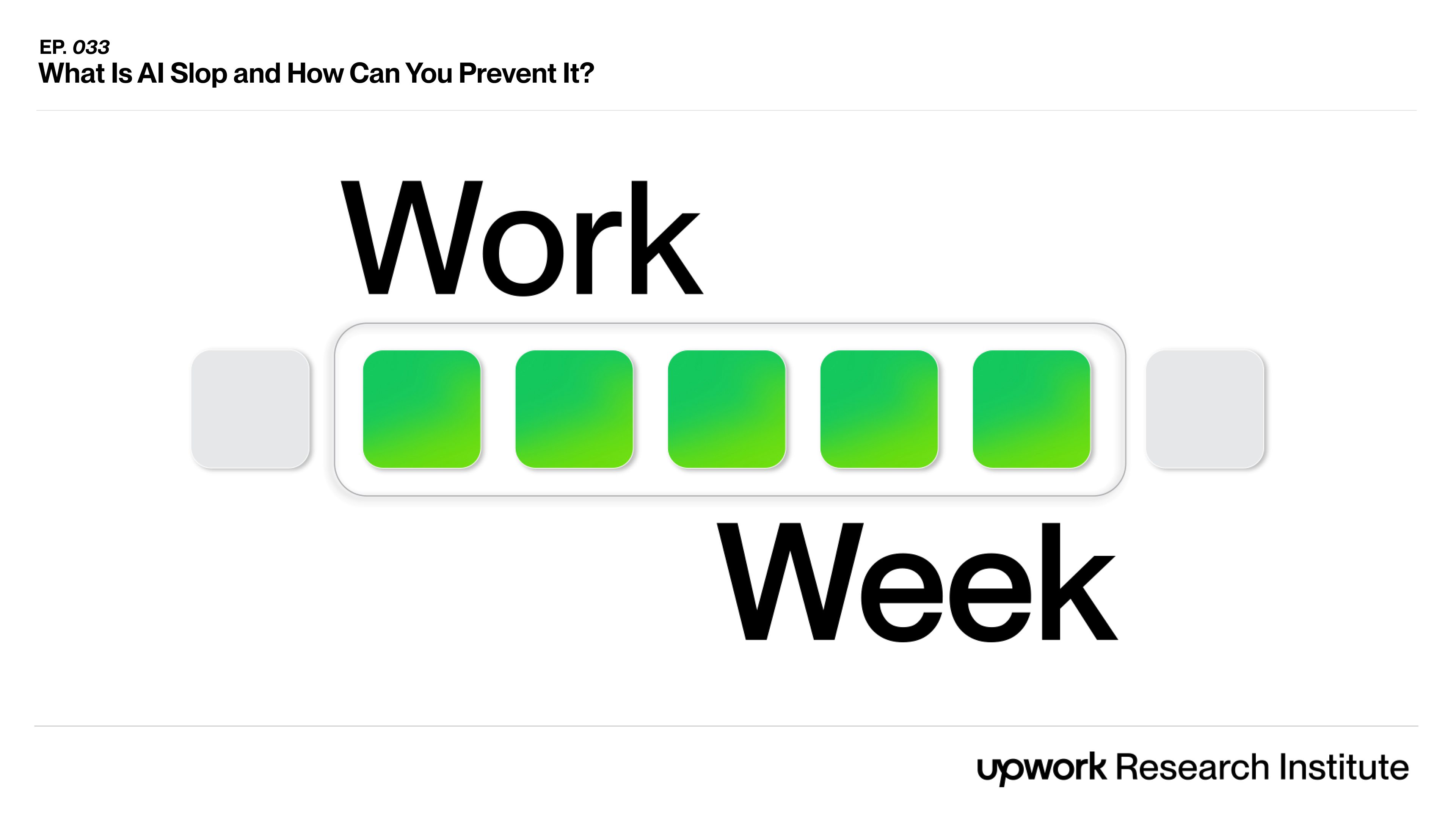
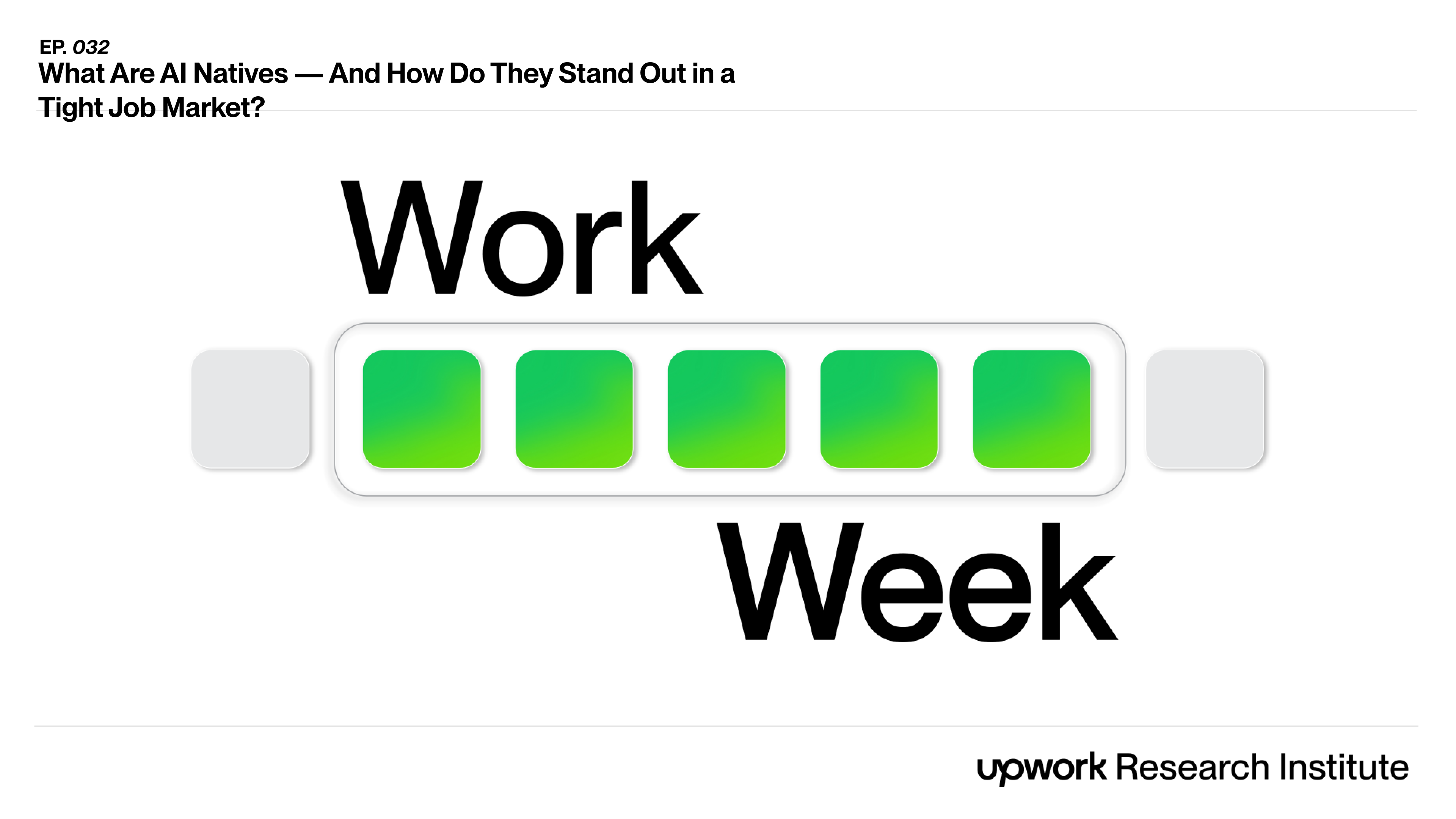
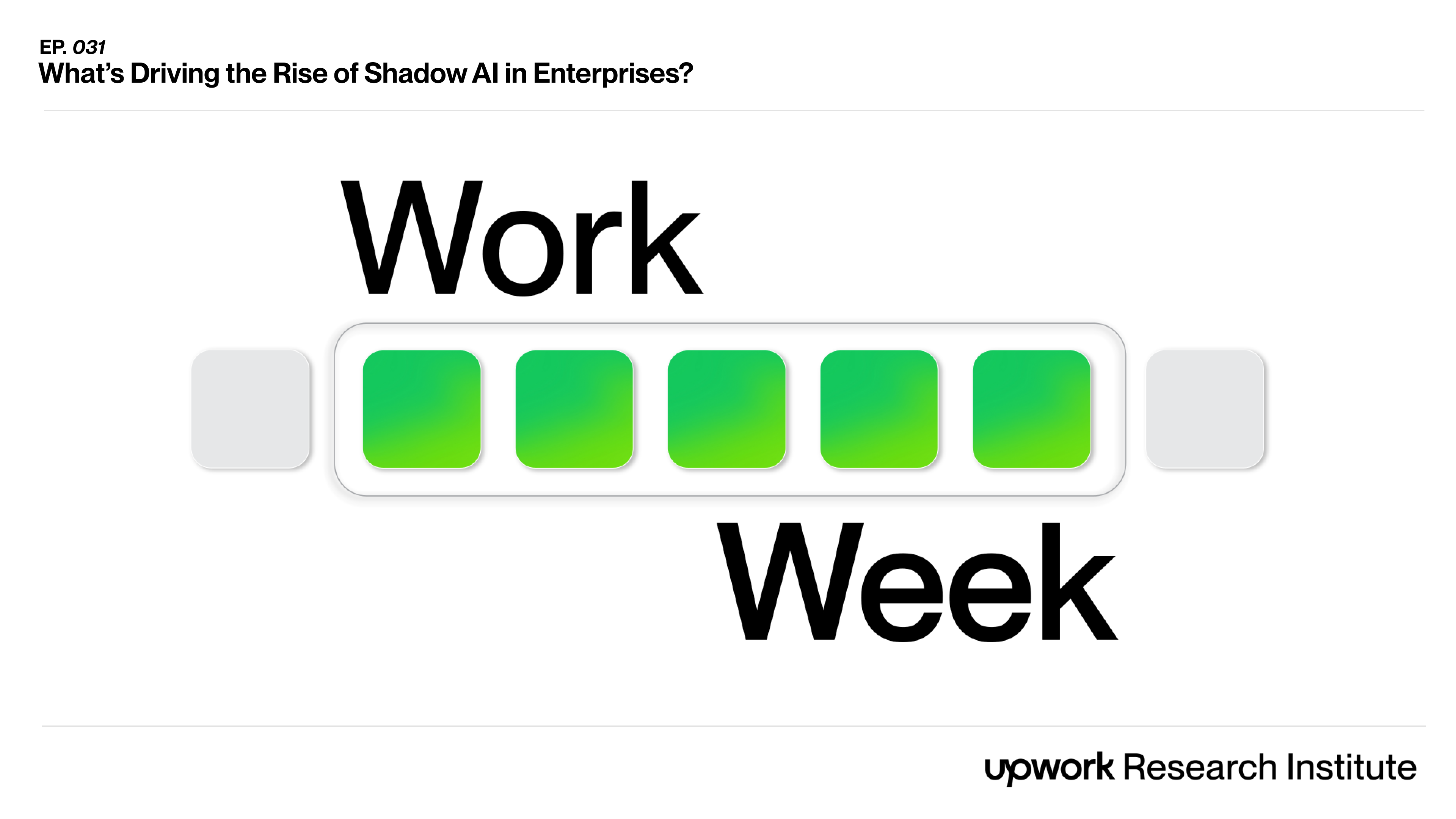
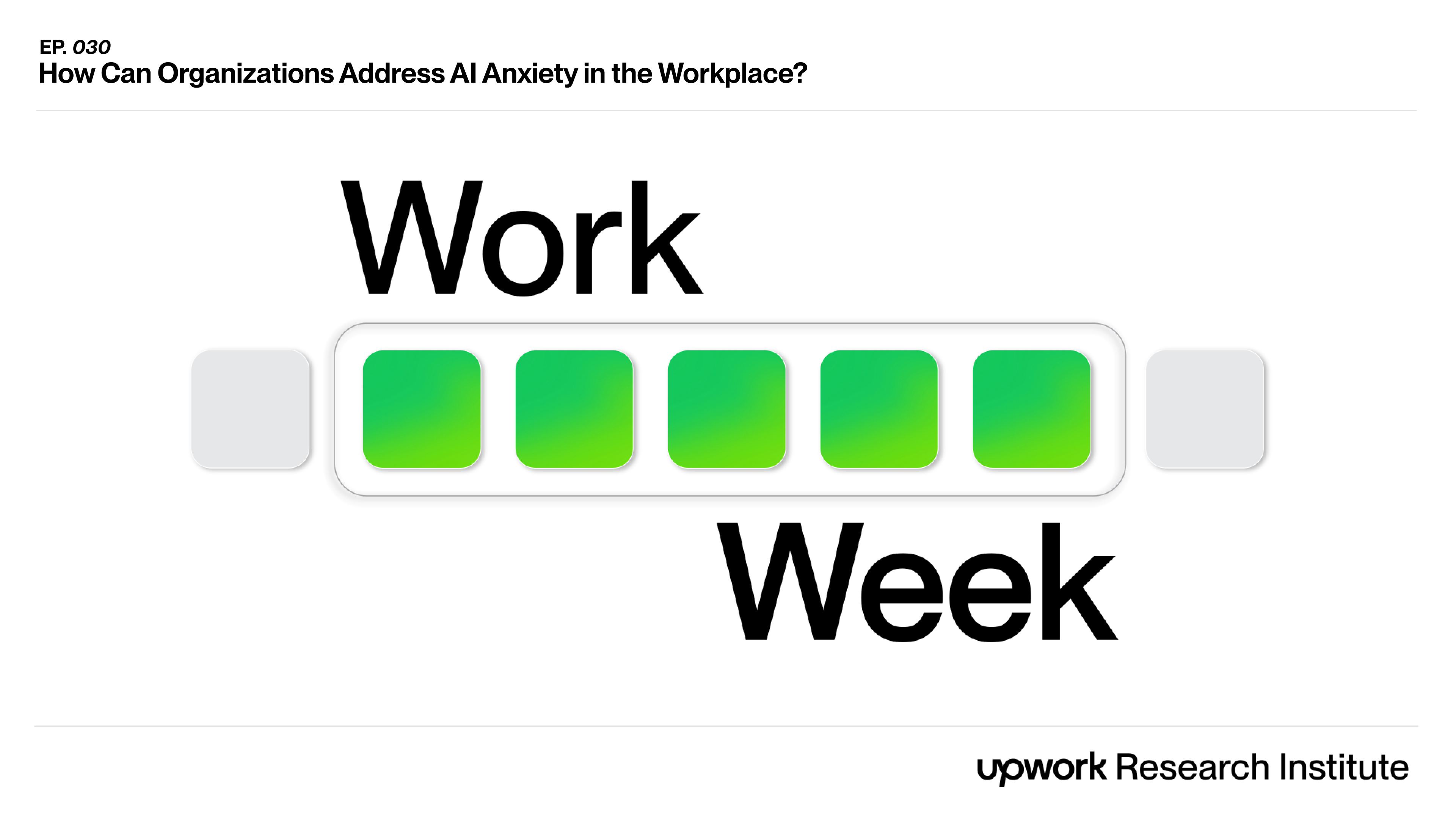
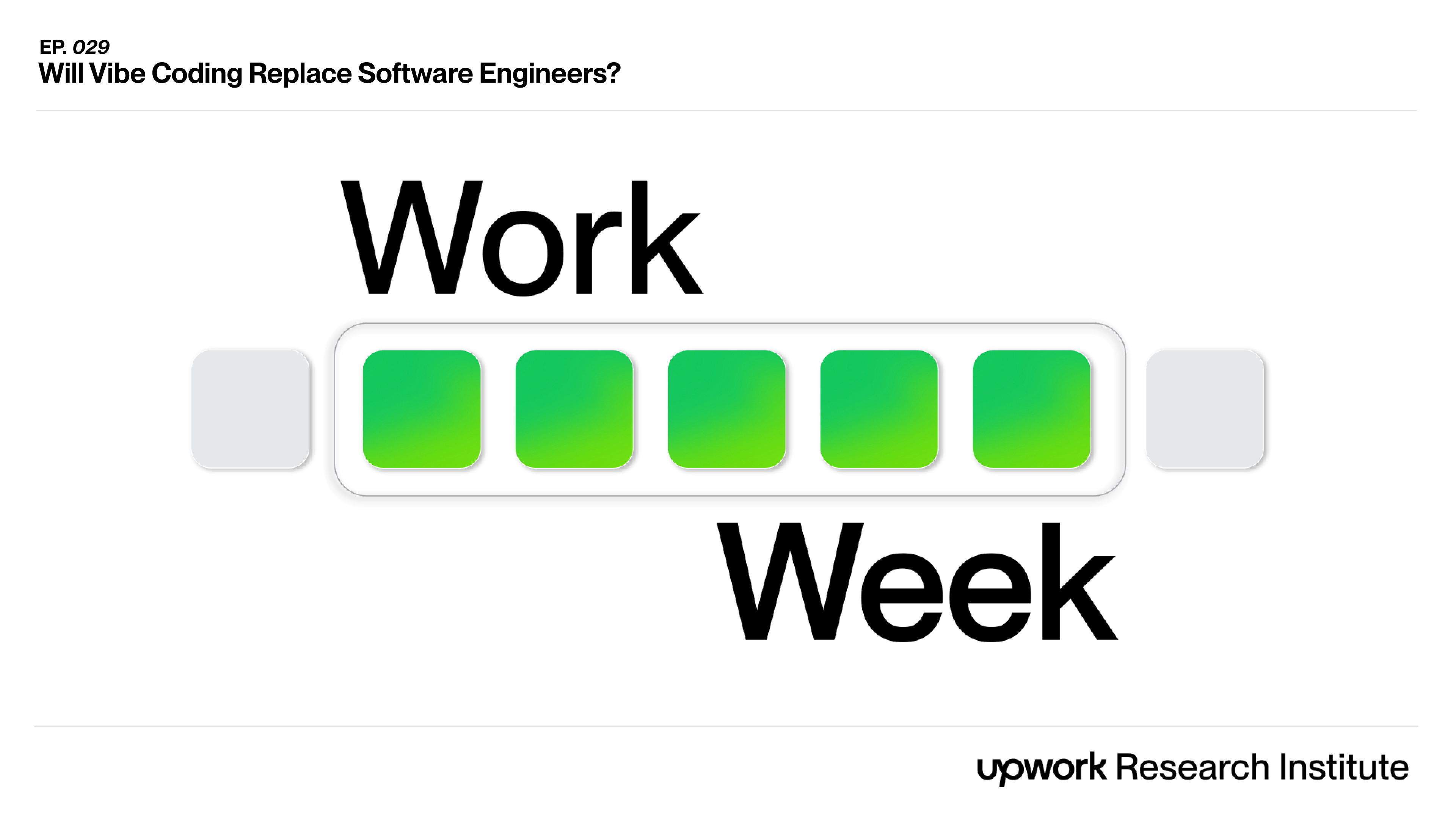
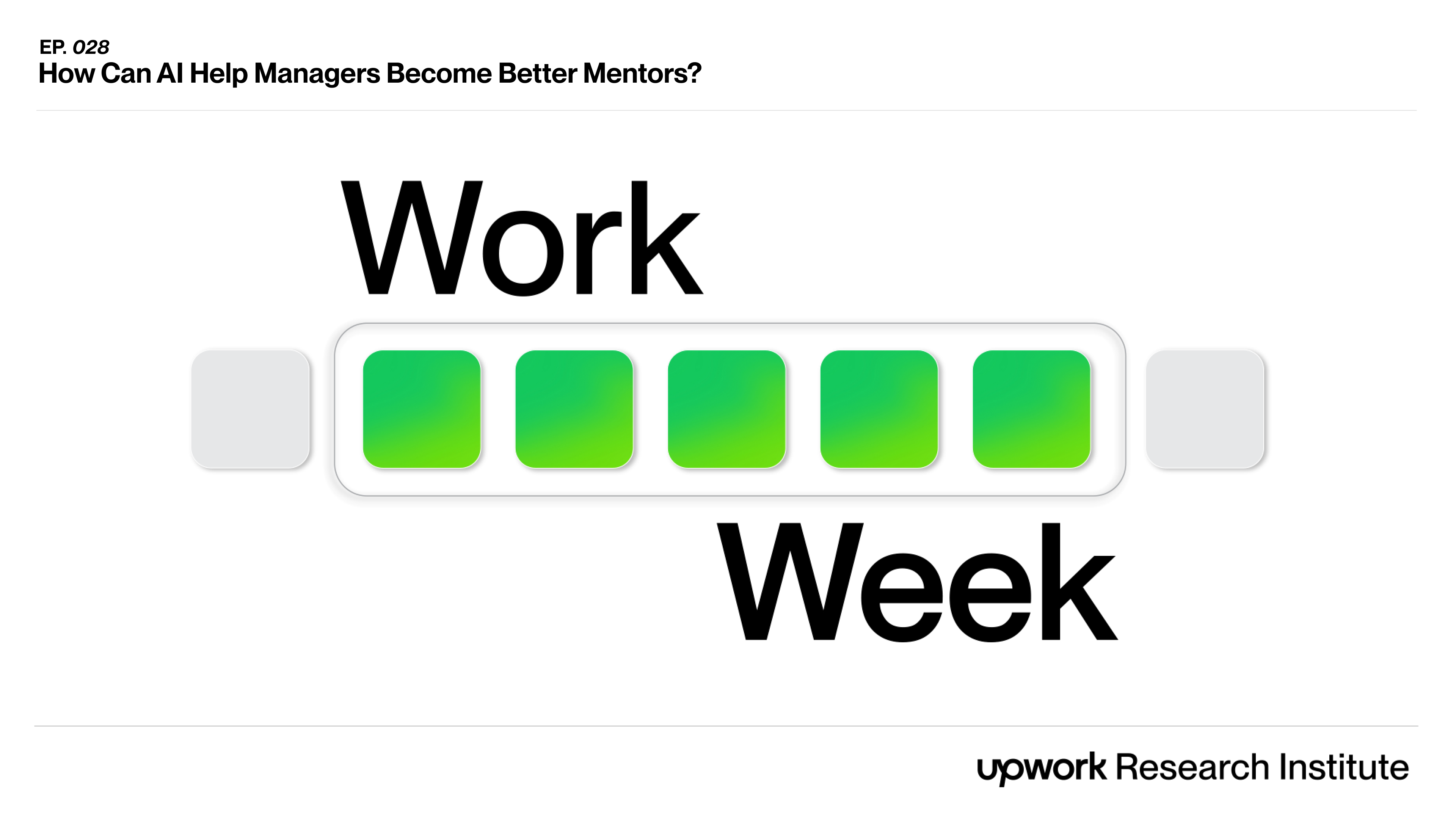

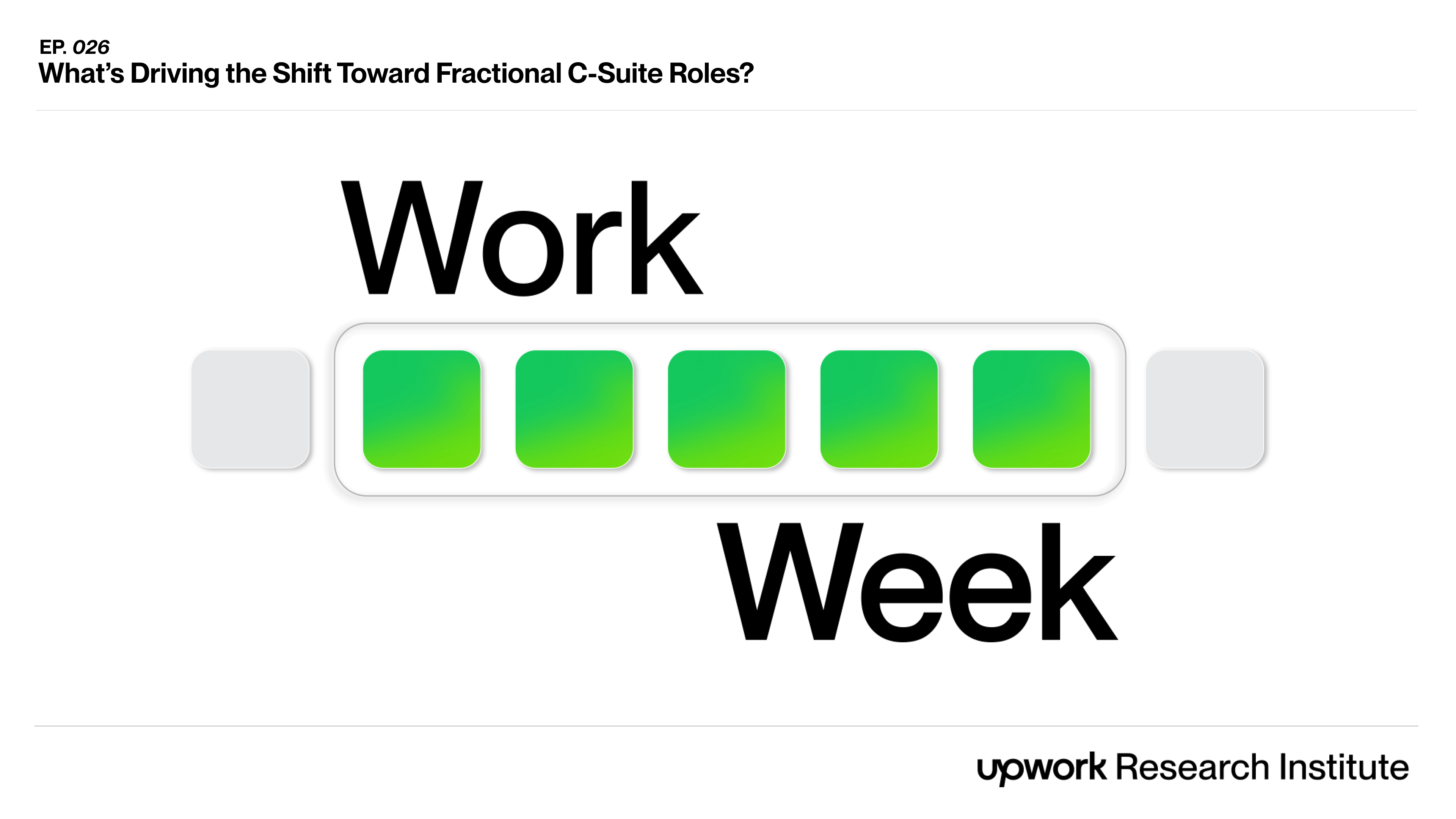
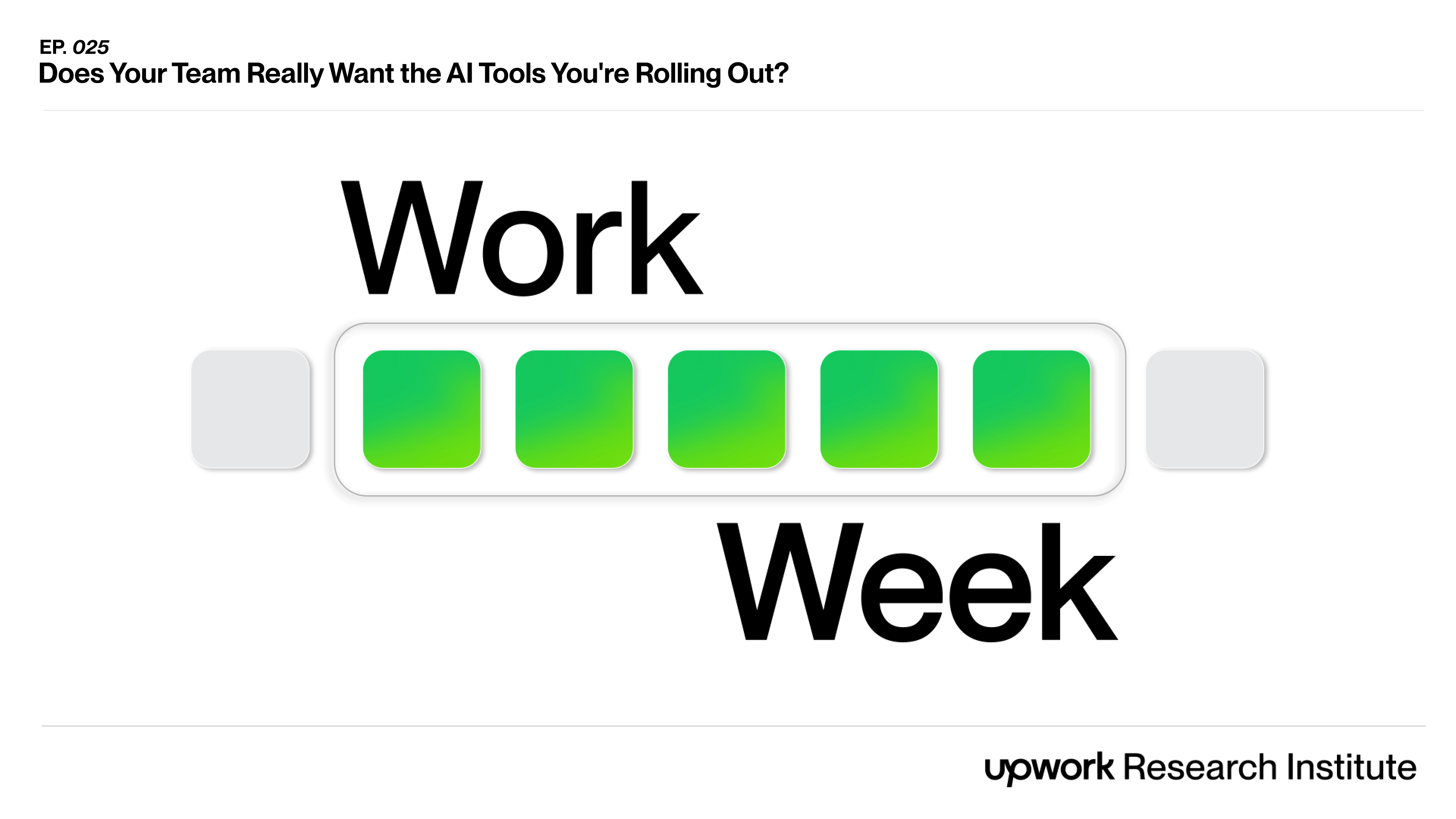
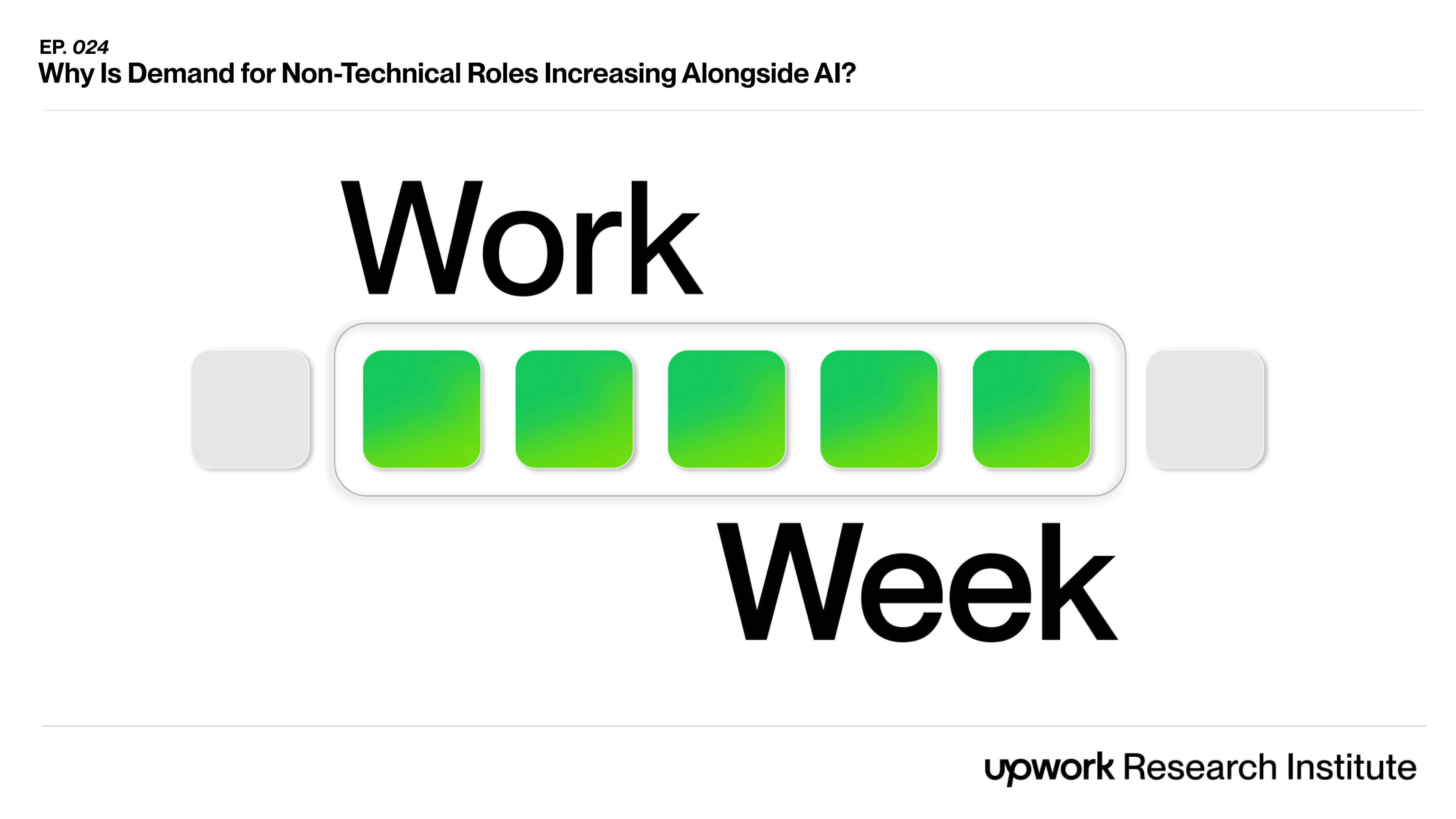
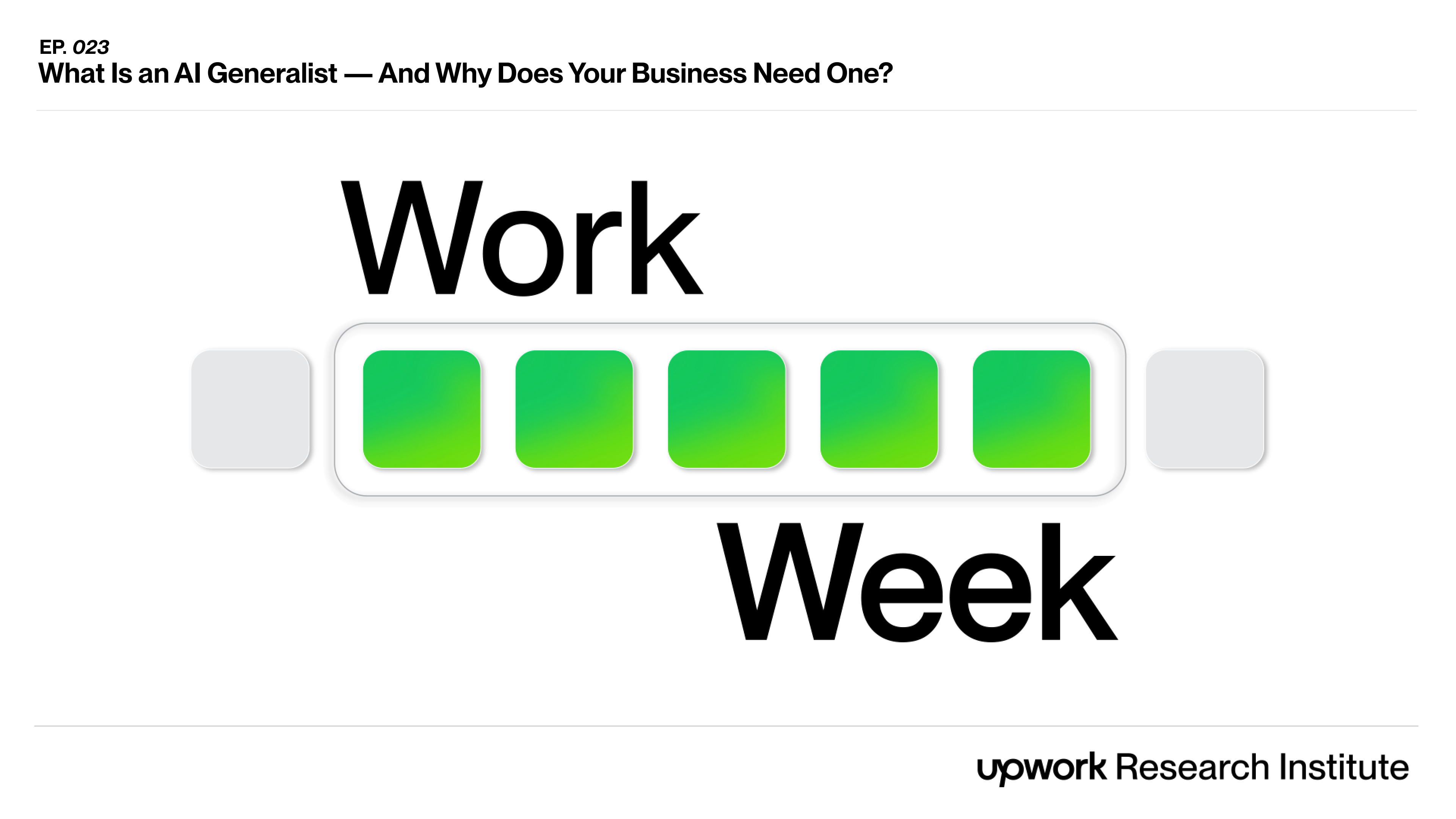
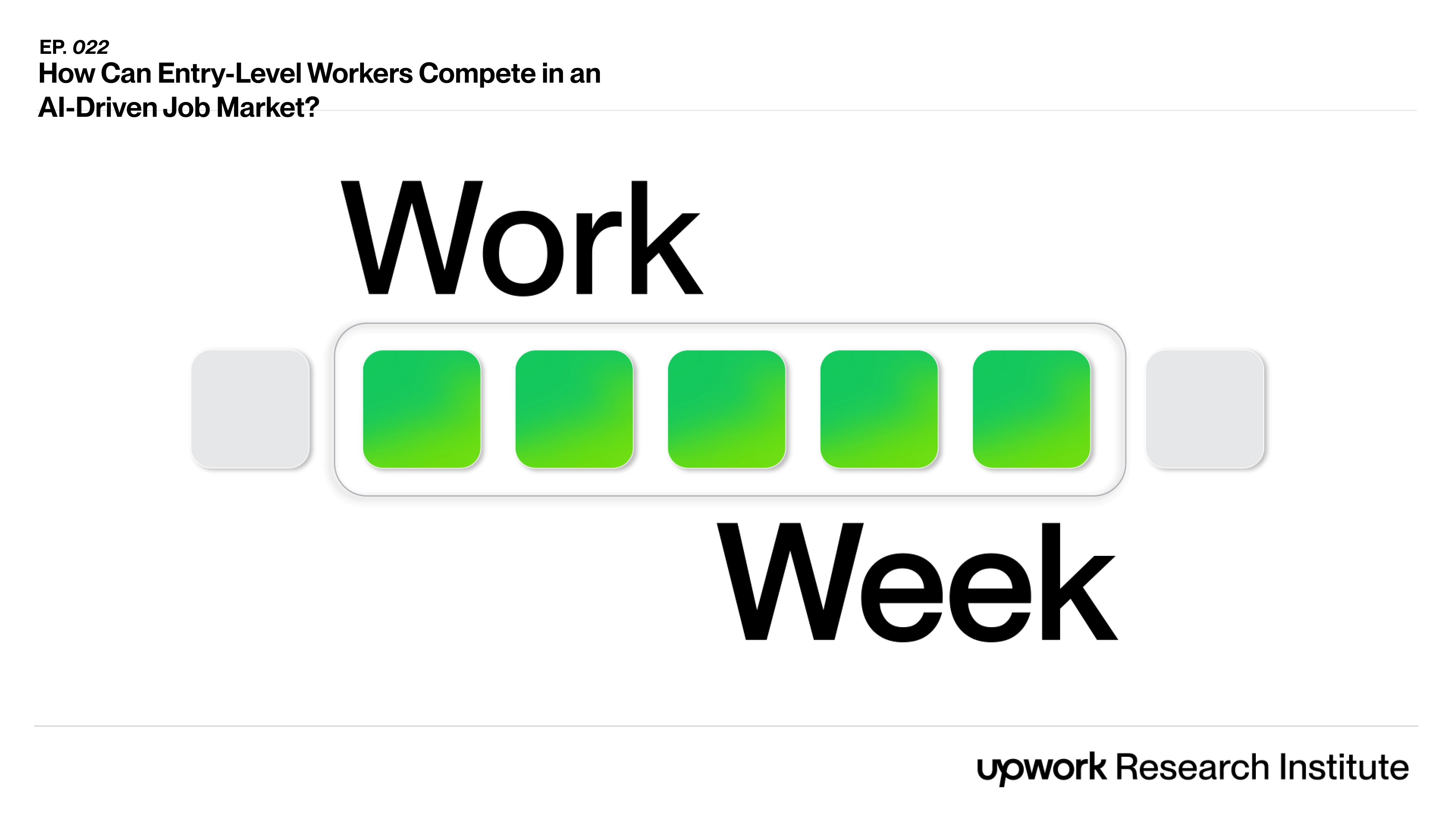

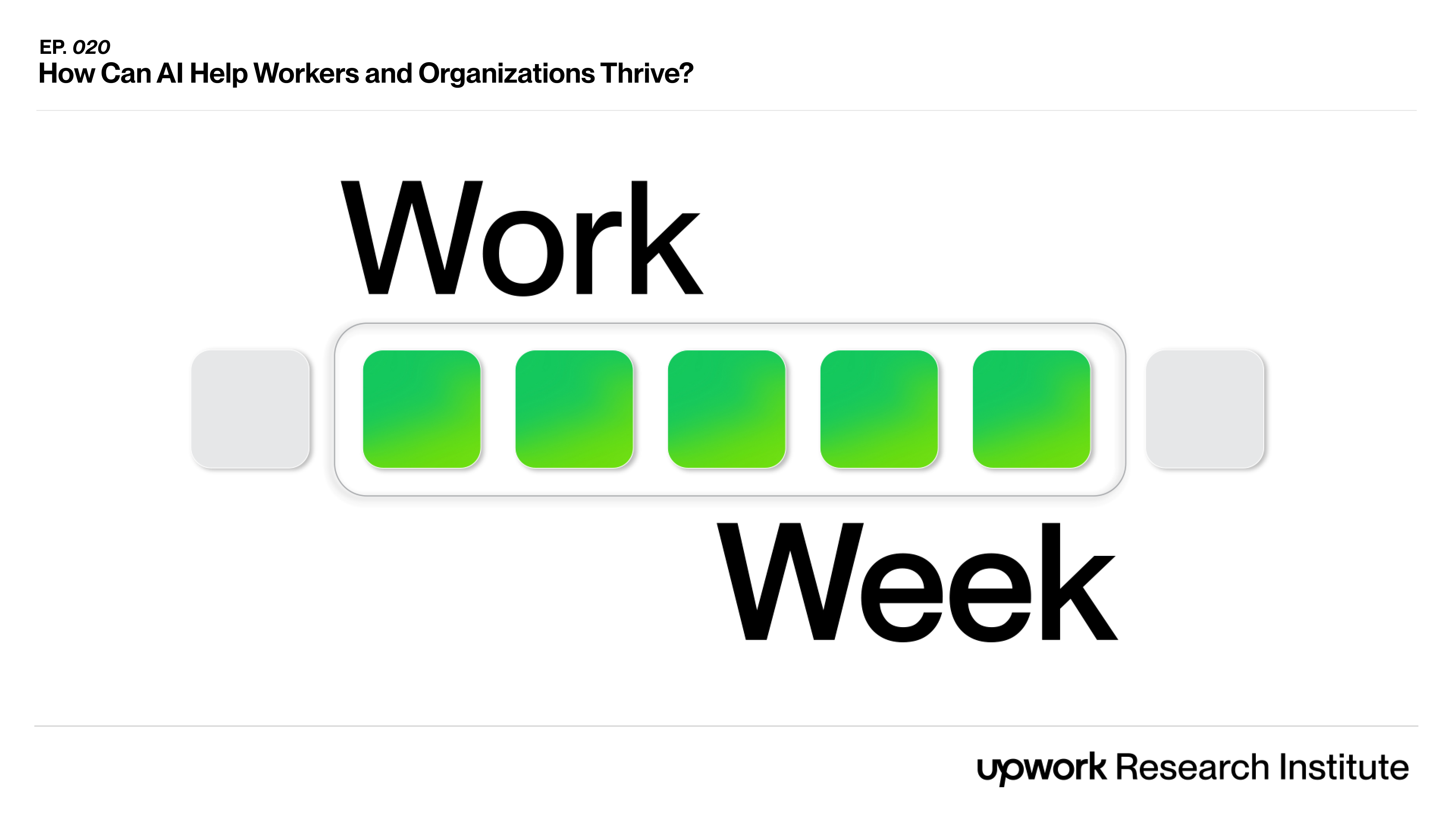
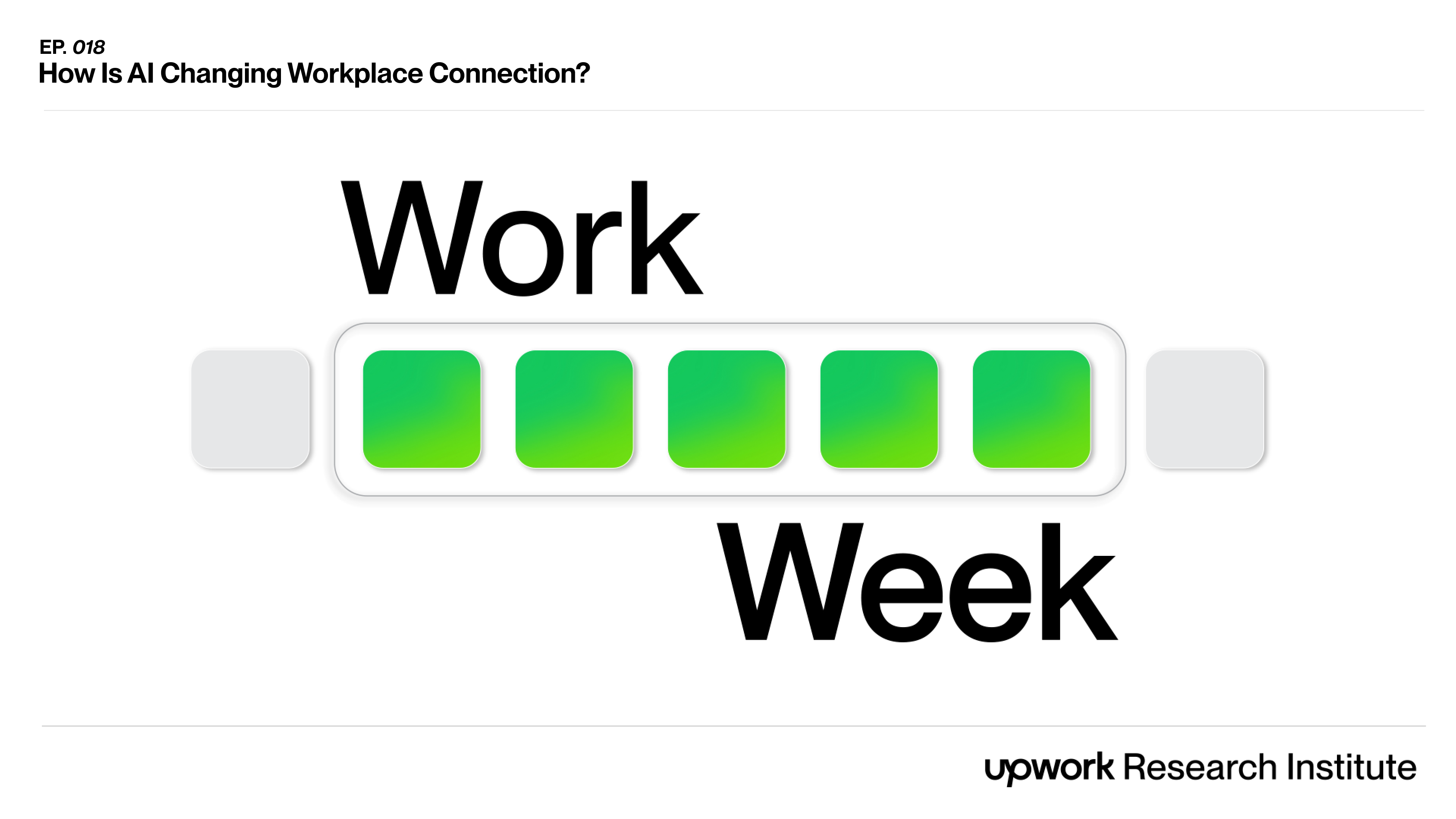

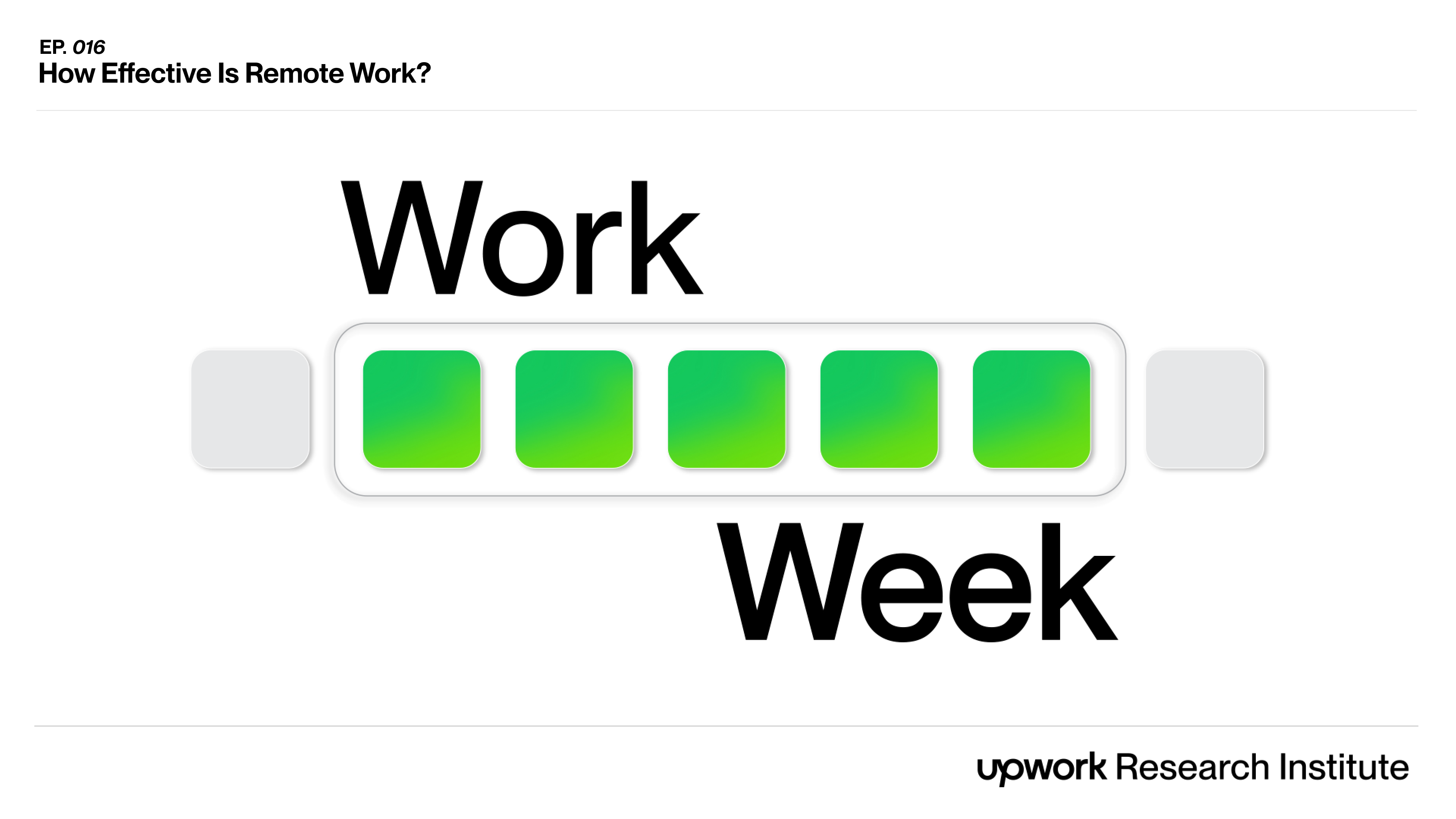
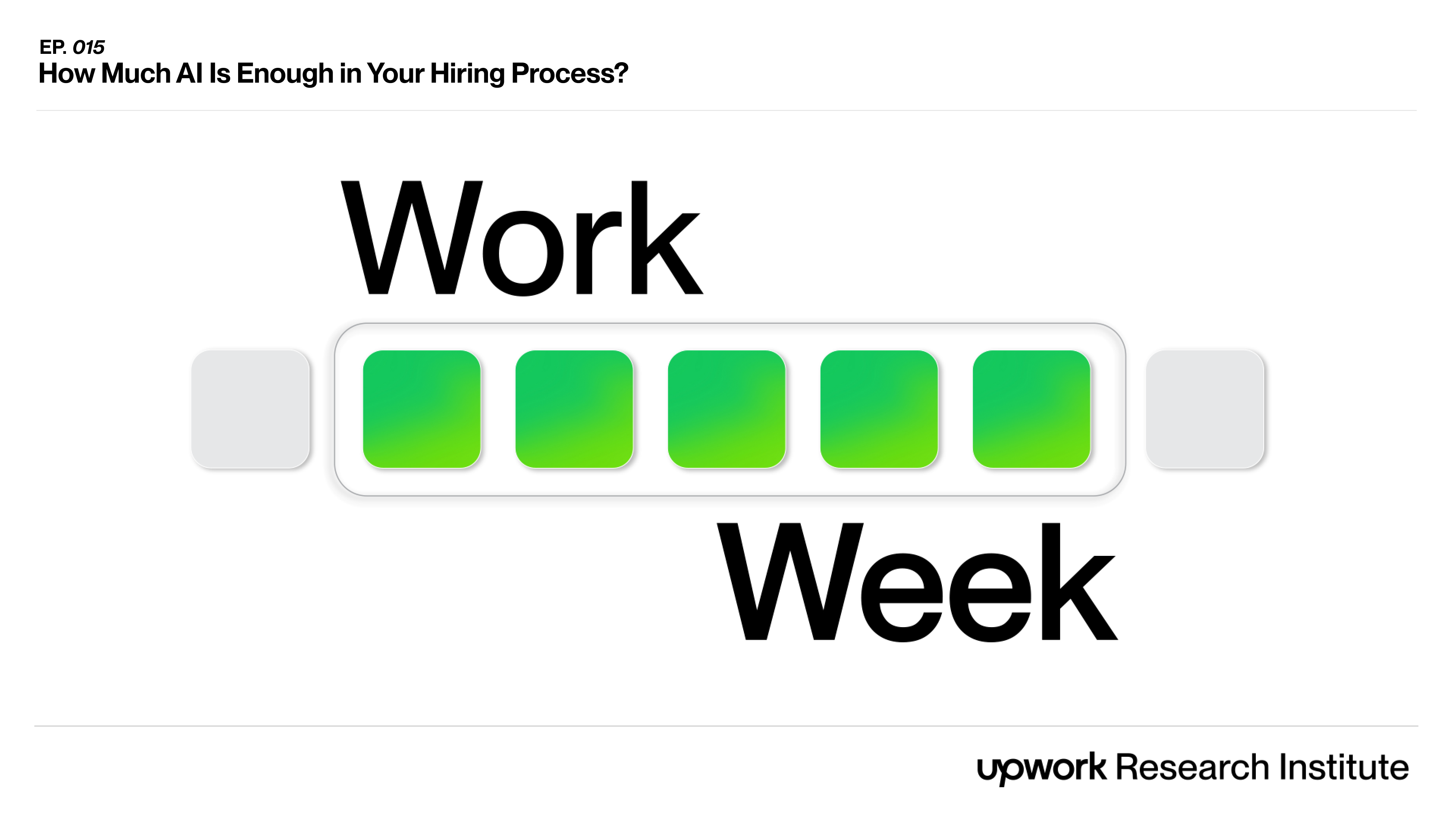

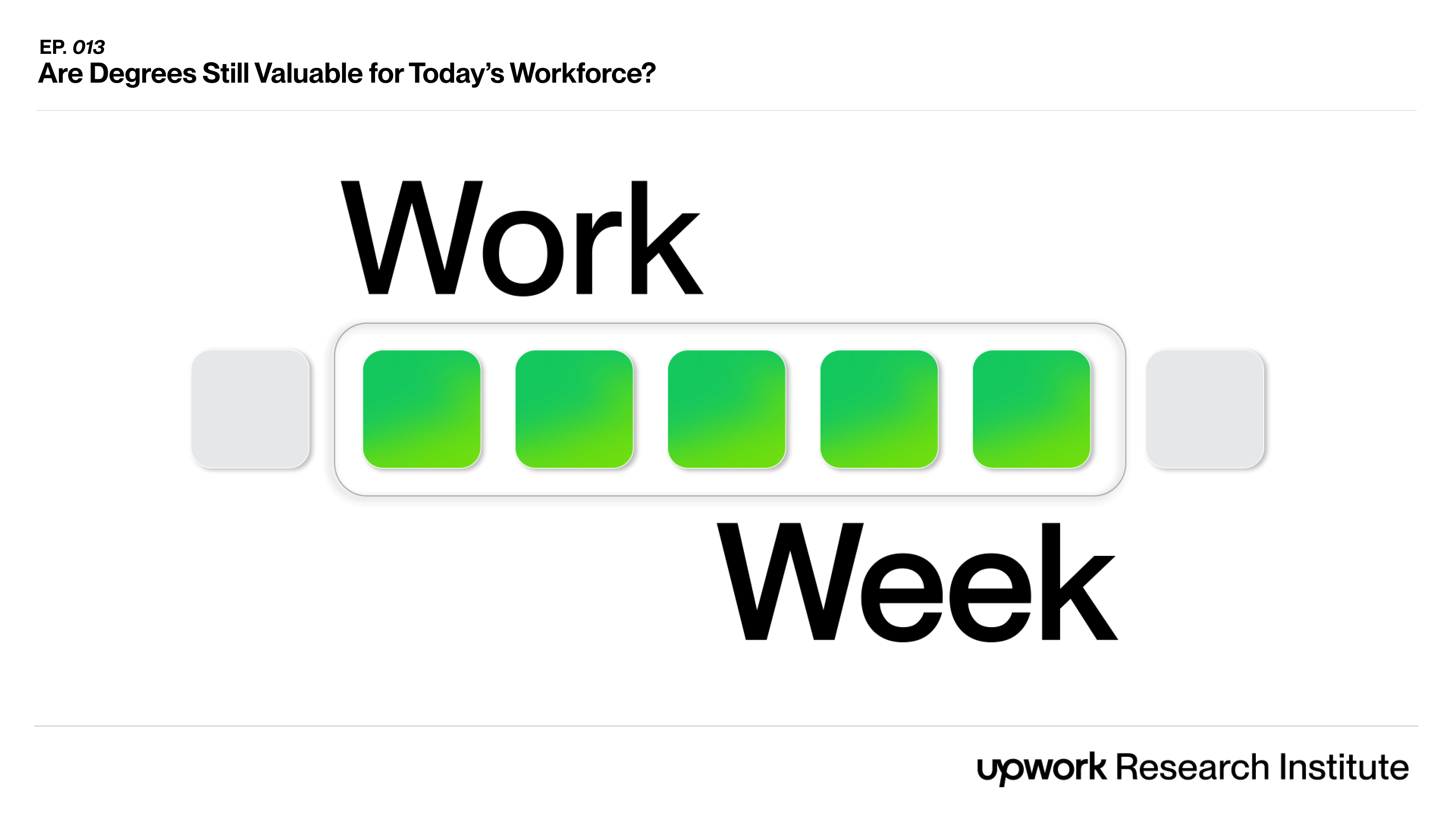
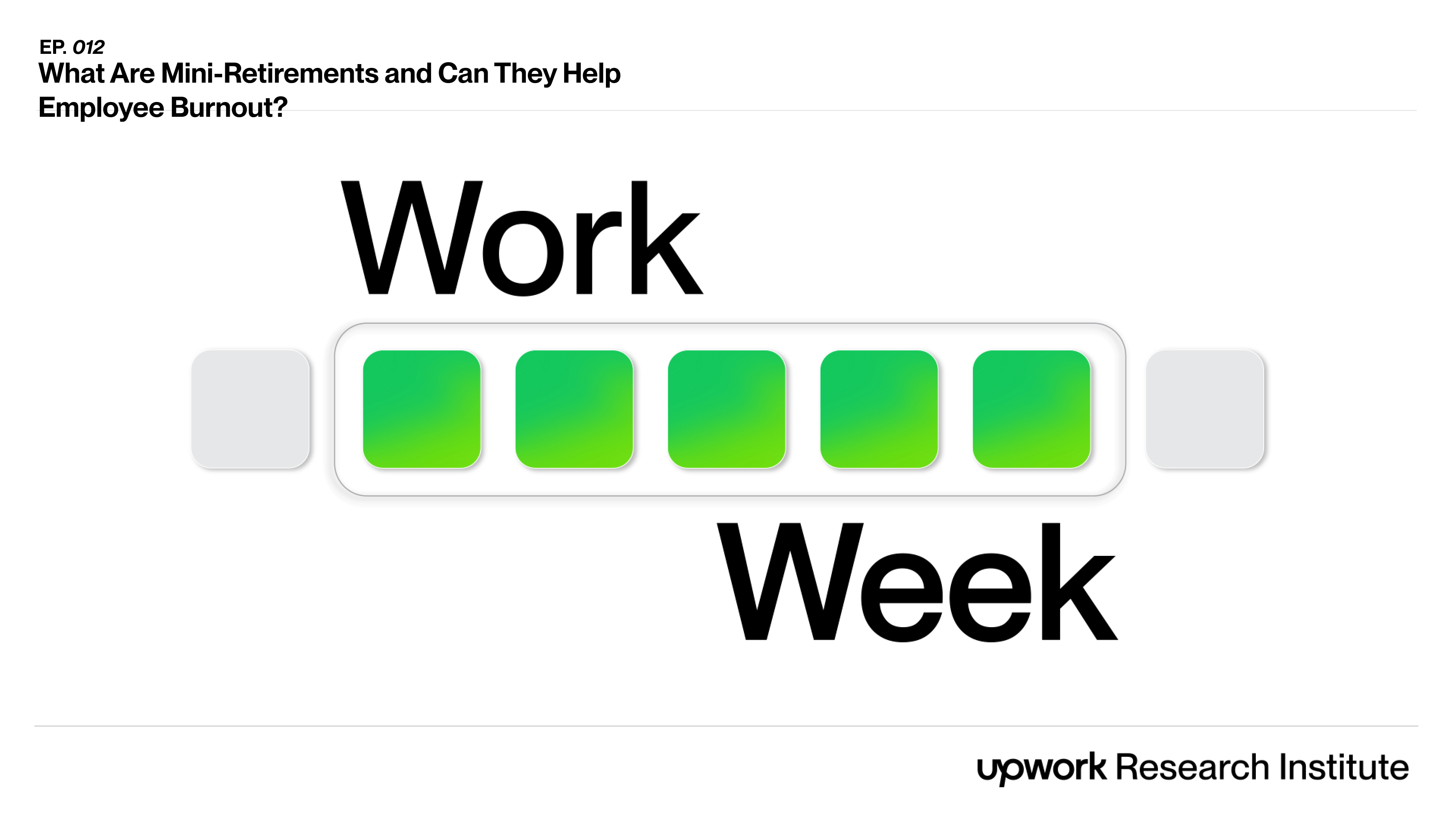
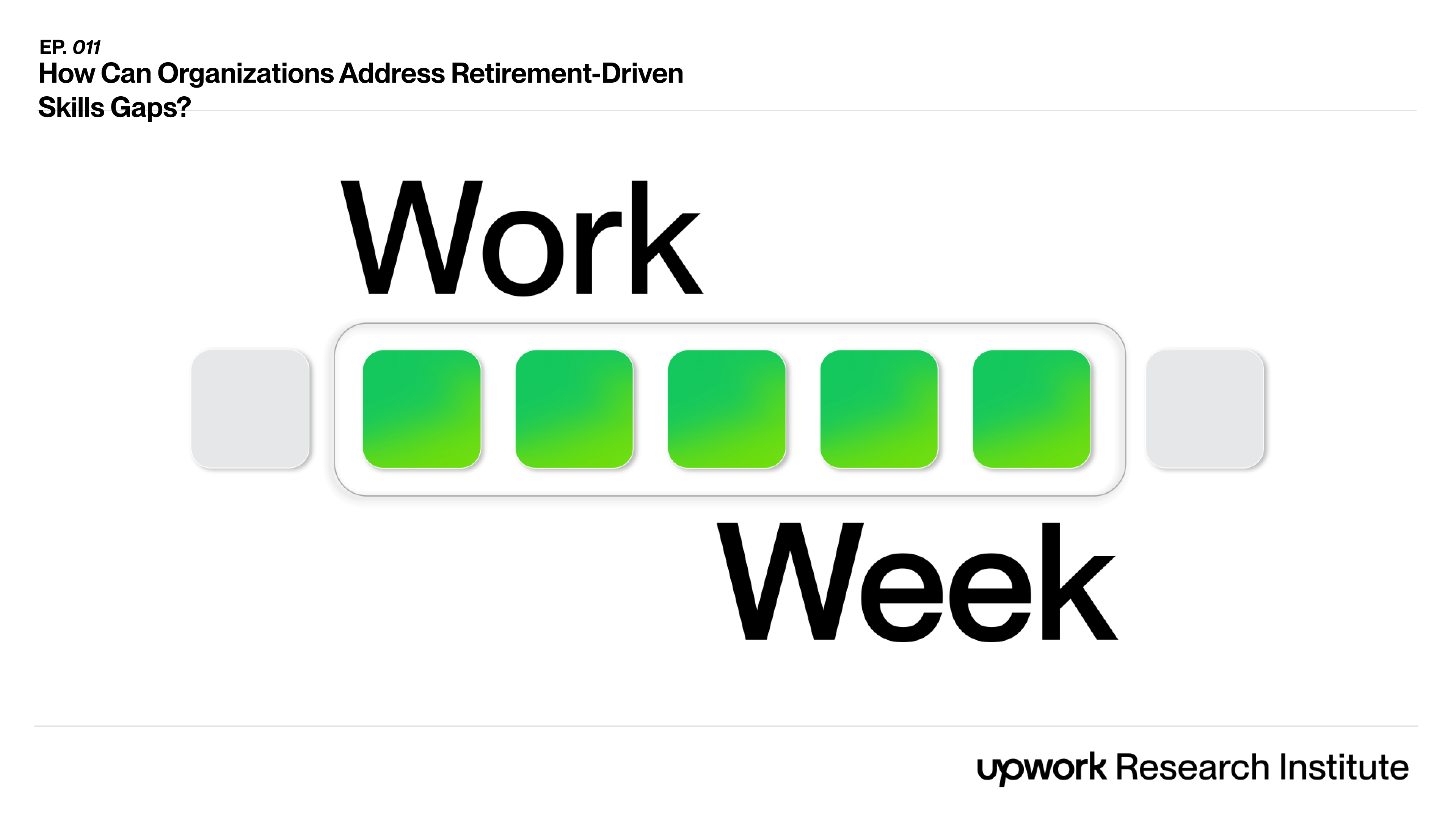
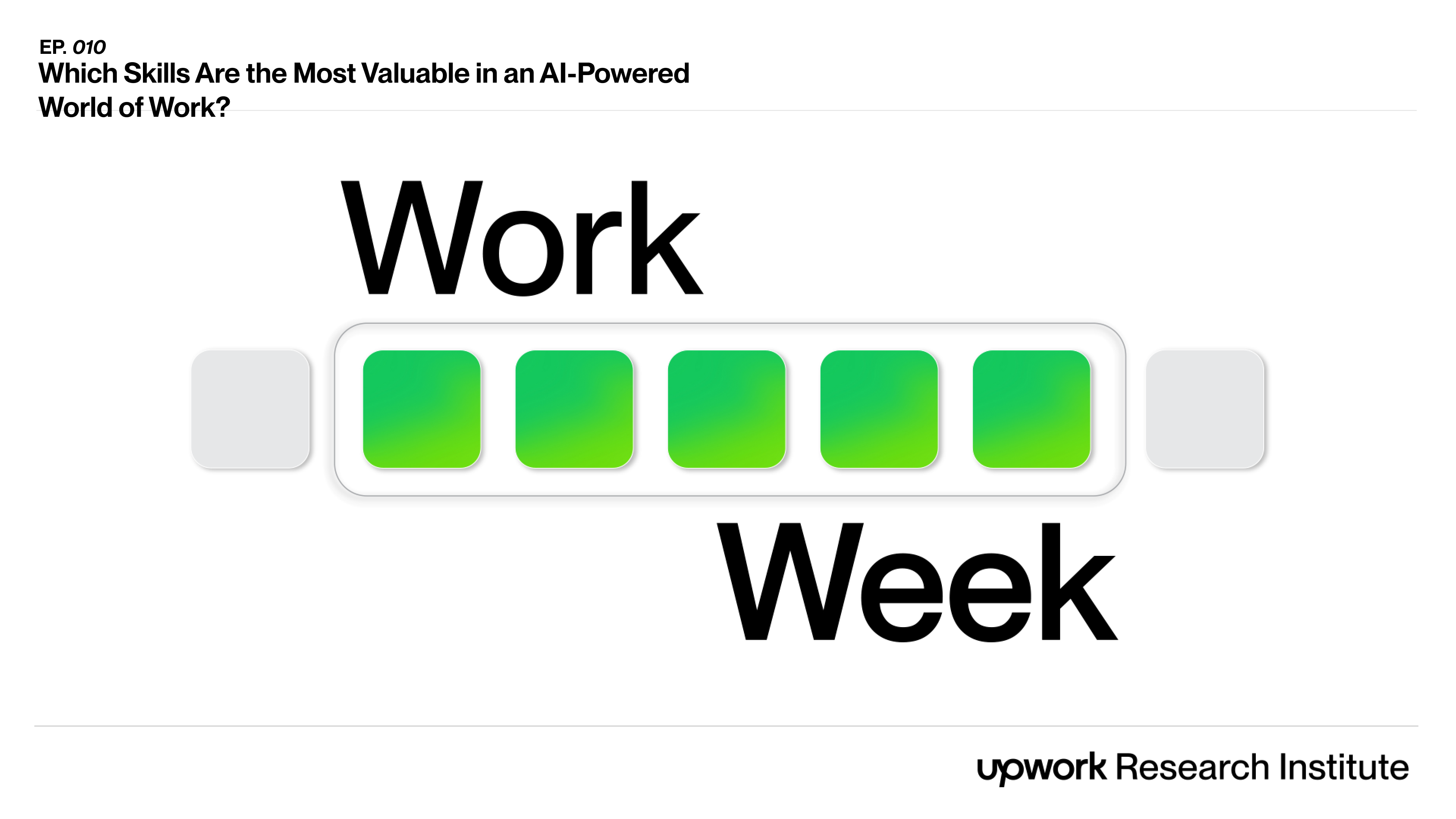
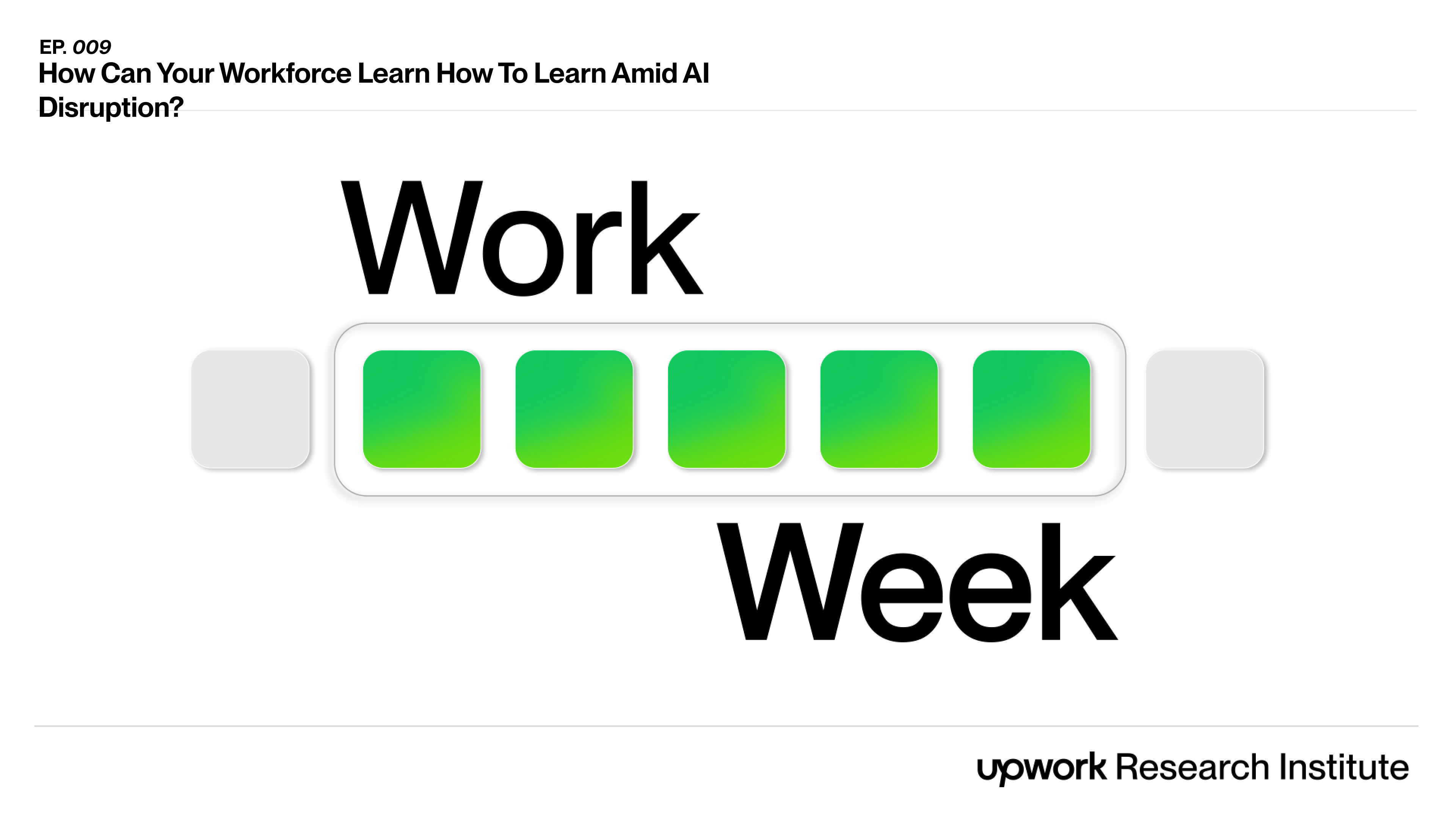
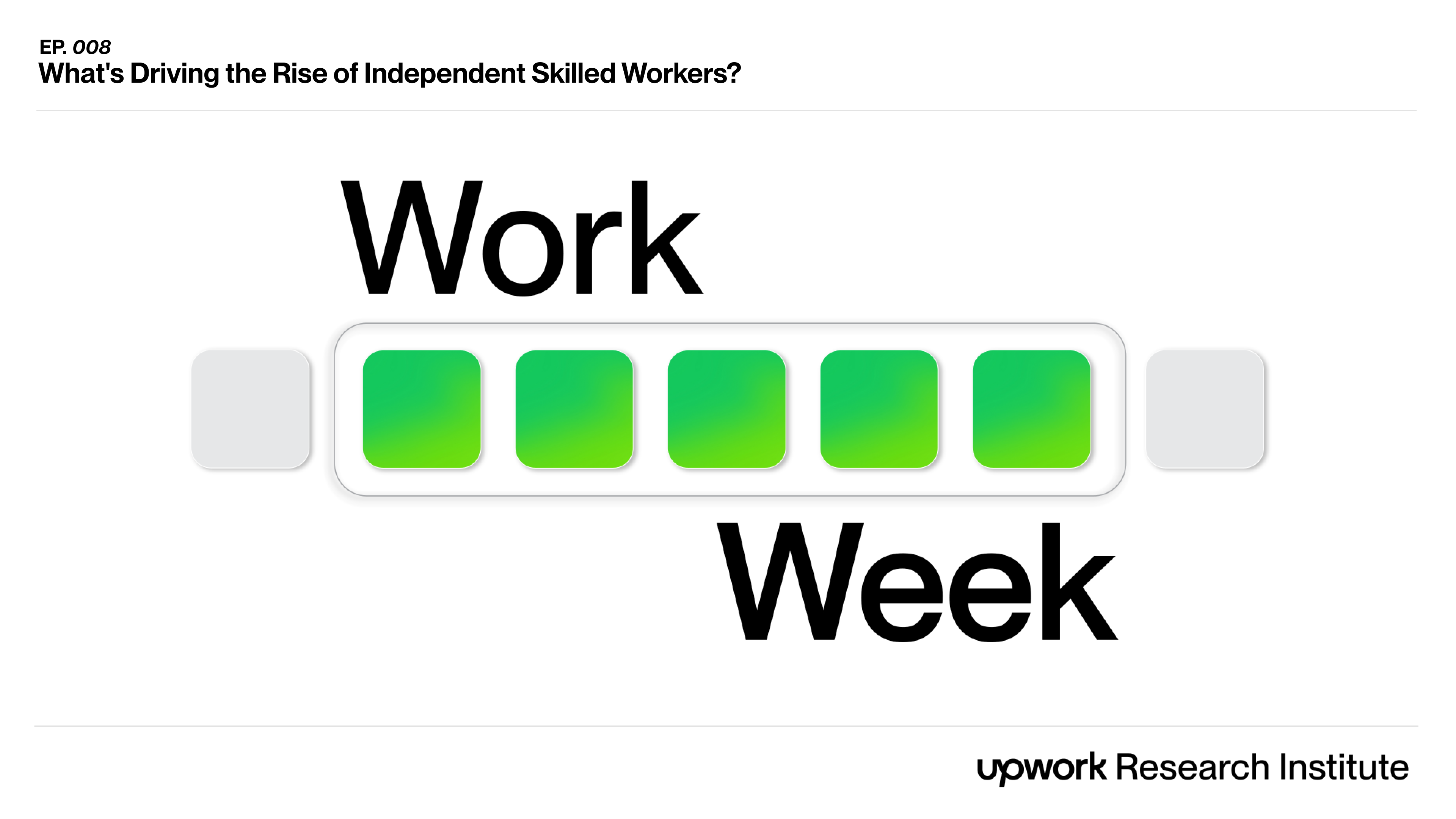
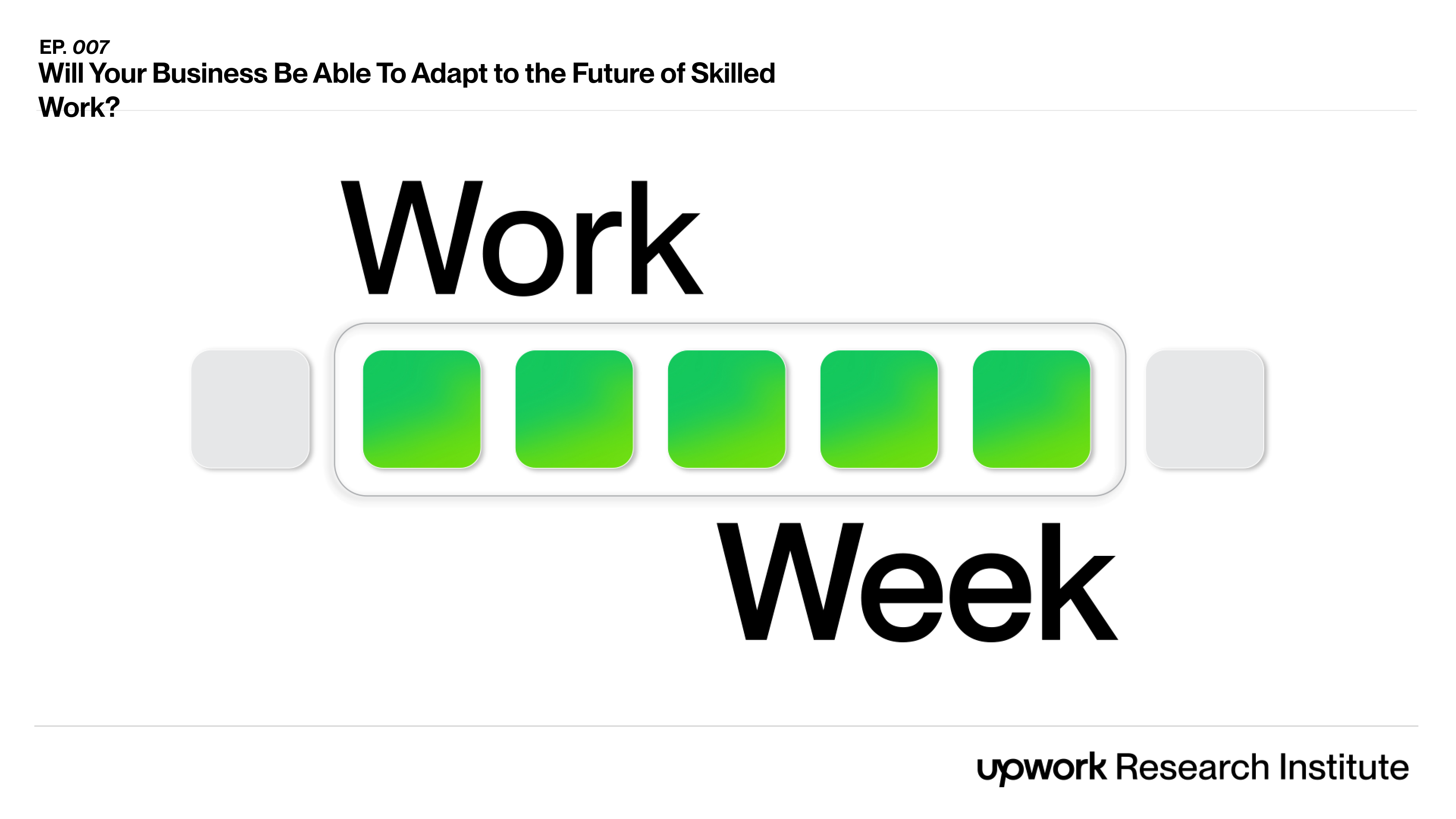
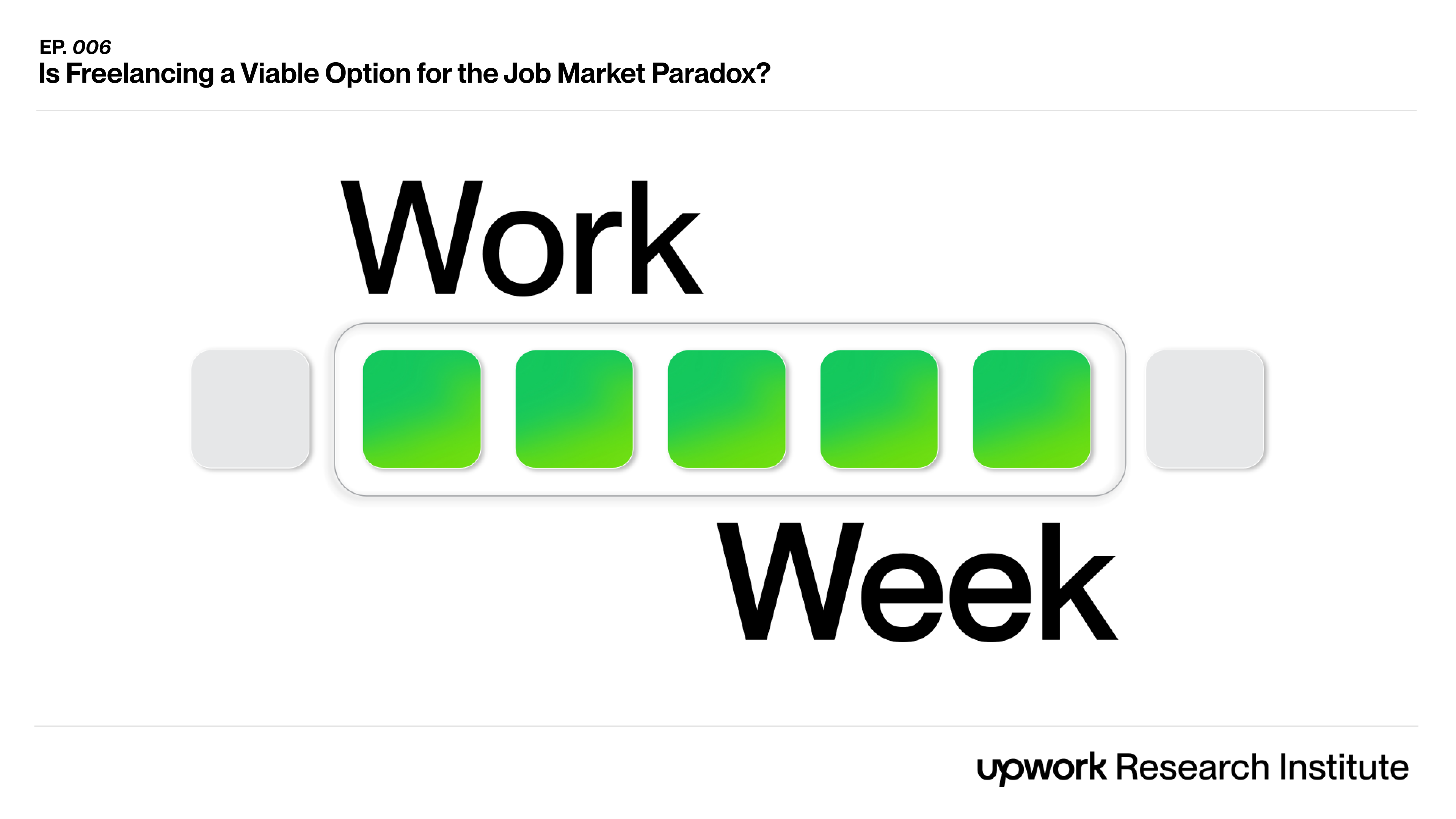
.png)
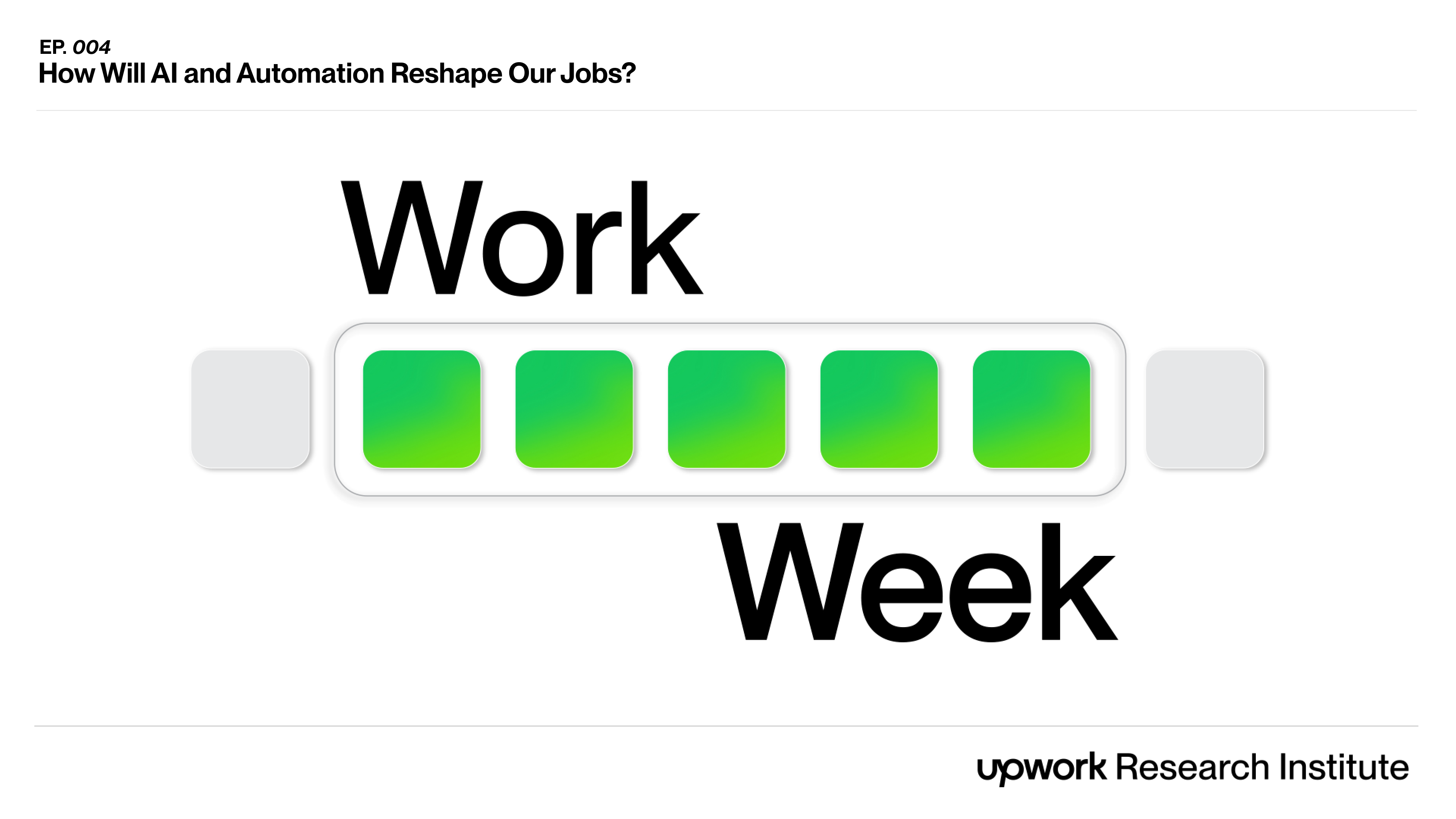

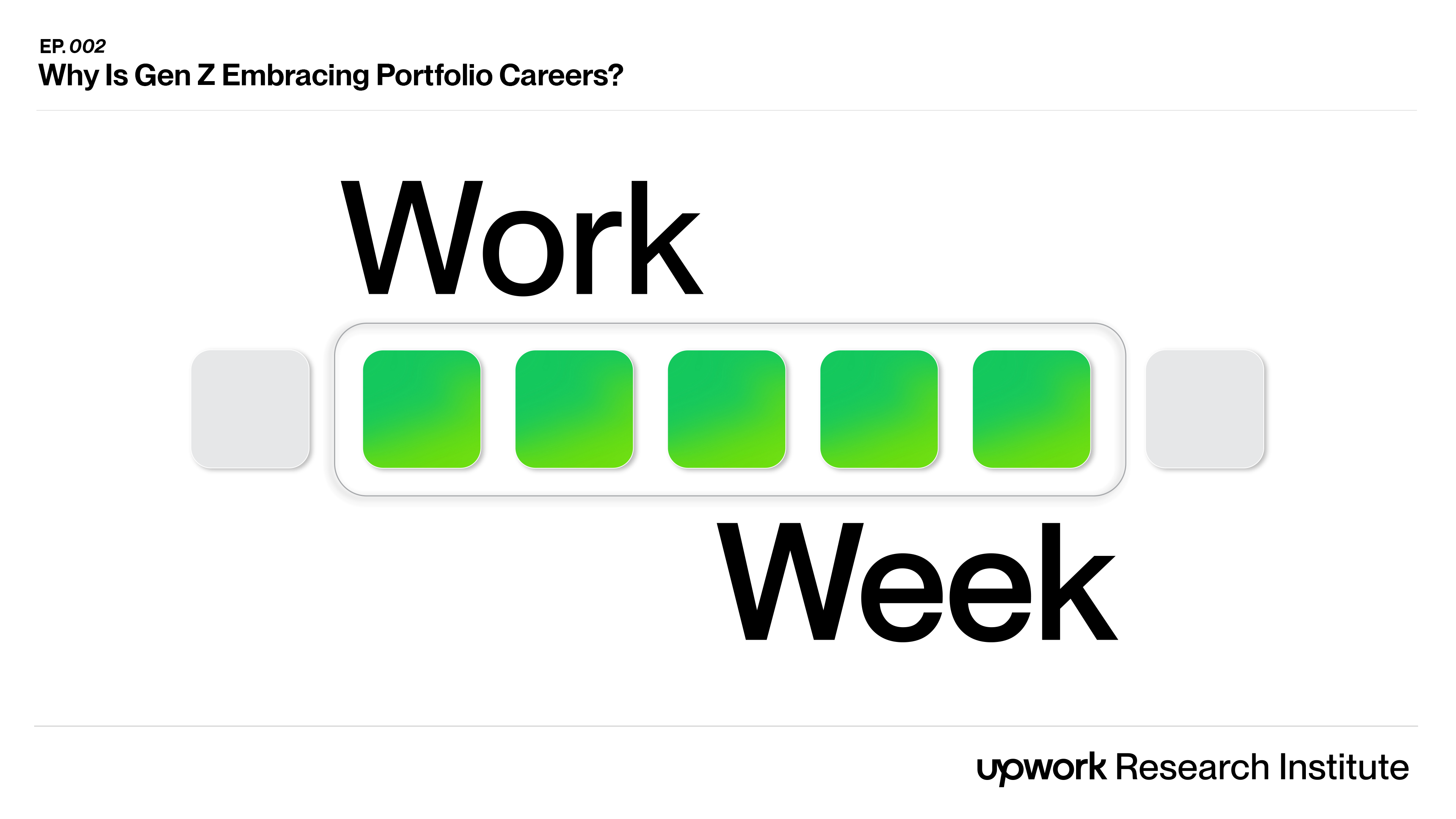
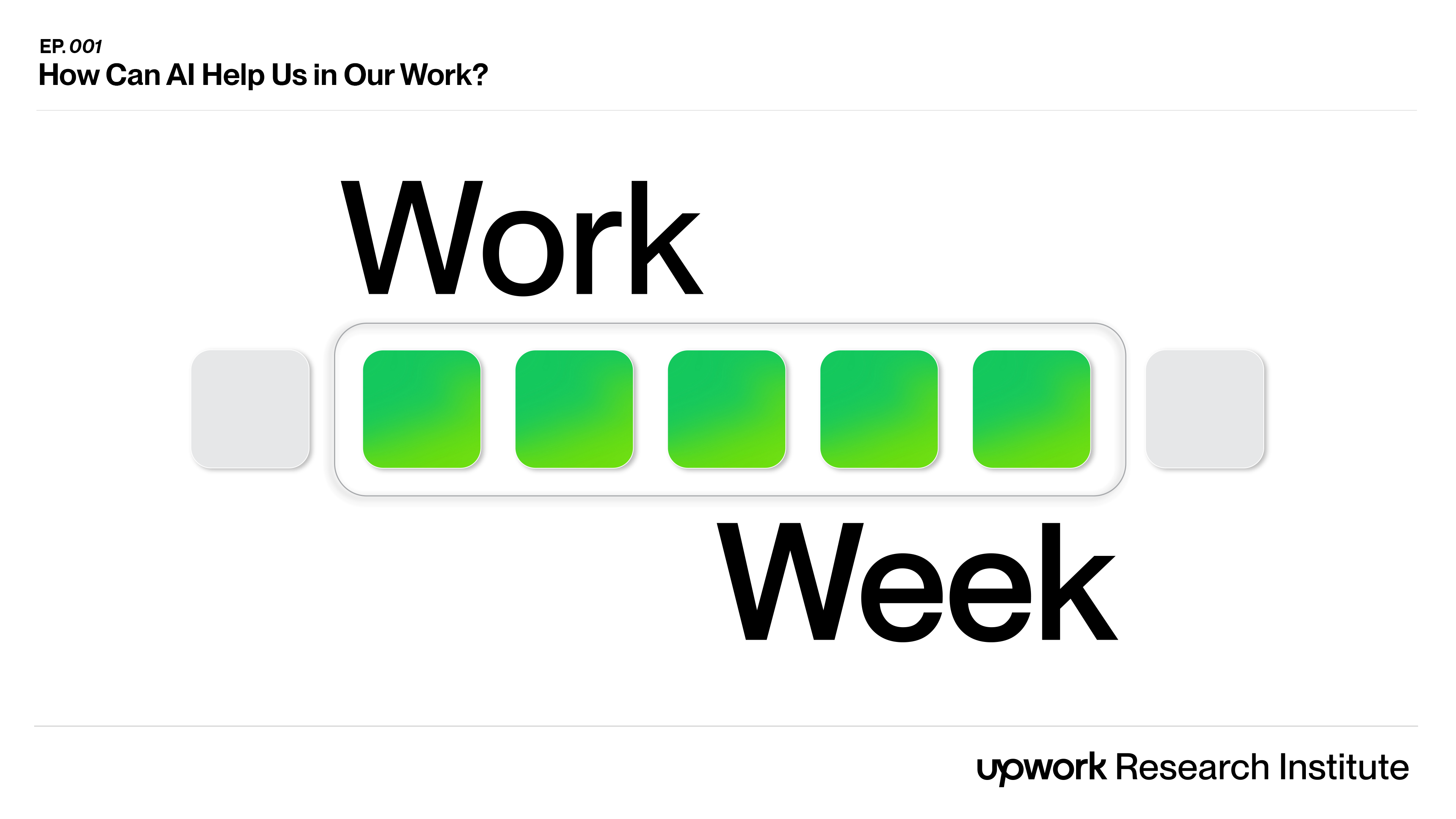
.jpg)